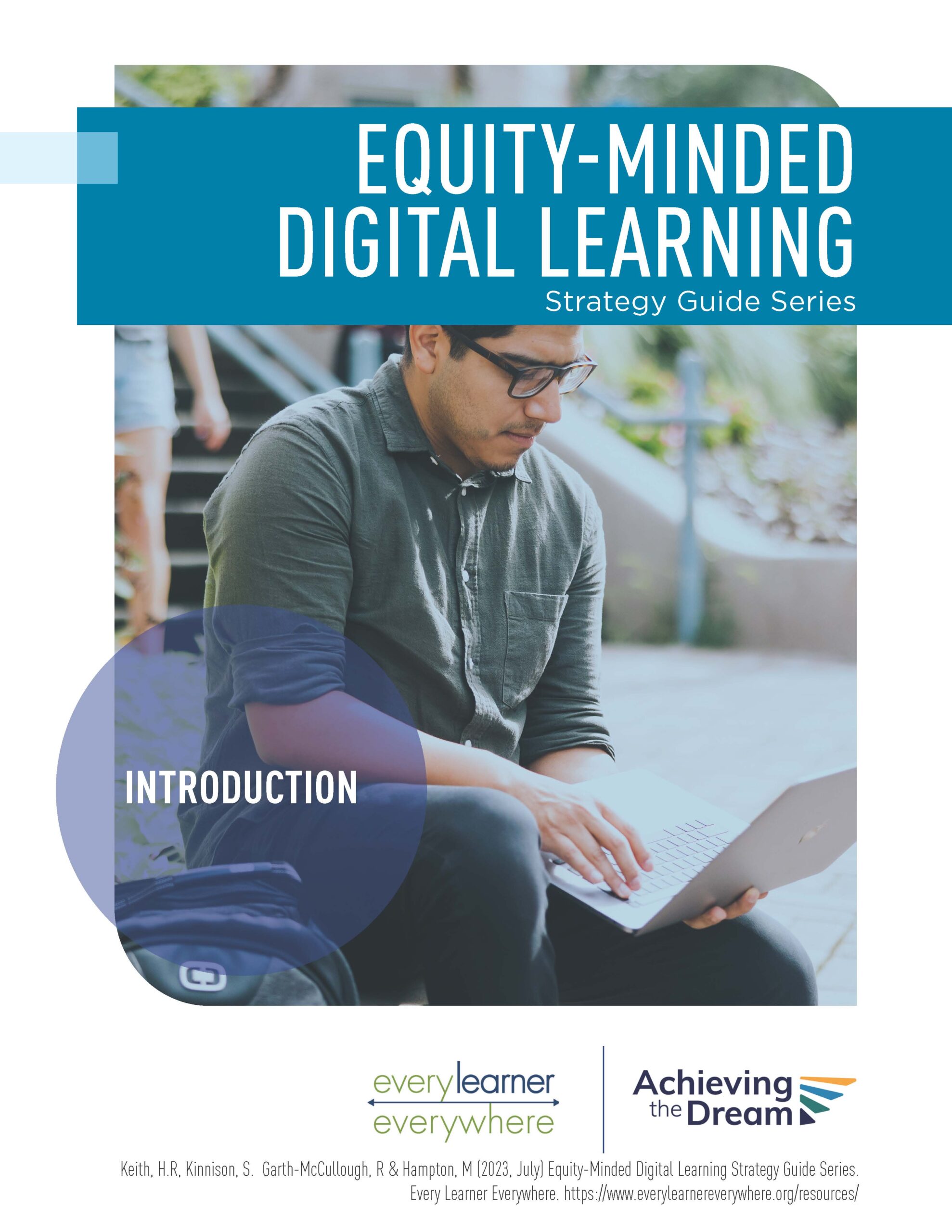
The Equity-Minded Digital Learning Strategy Guides help faculty intentionally and authentically affirm, uplift, and liberate students. As higher education continues to address eliminating inequitable outcomes in teaching and learning, these guides will help institutions embed equity, culturally responsive teaching, social justice education, and open pedagogy through evidence-based teaching practices.
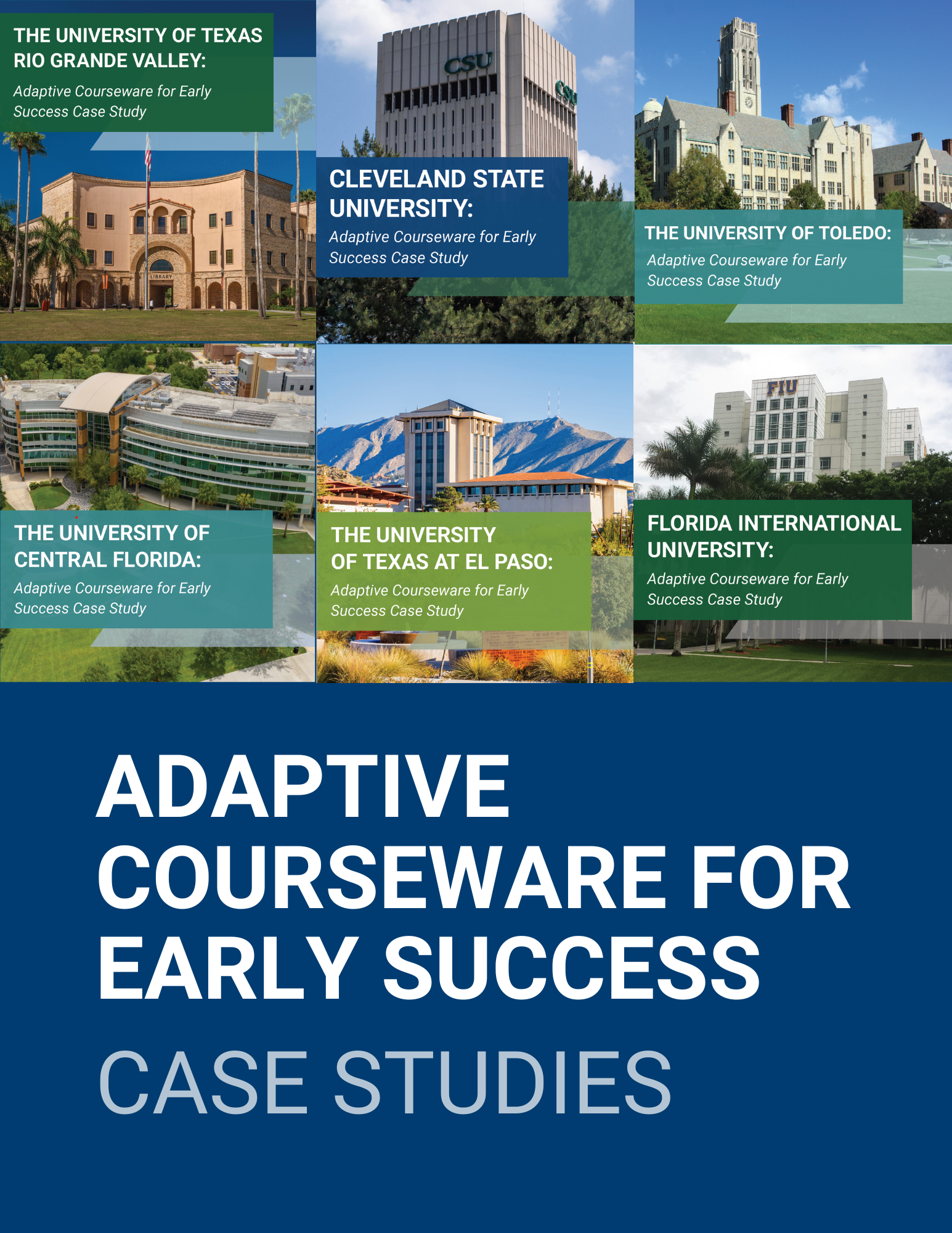
The Adaptive Courseware for Early Success (ACES) Initiative was a grant-funded initiative supported through the Every Learner Everywhere network. The PLC provided intensive coaching, peer-mentorship, collaborative learning and networking opportunities, and educational resources and training to cross-functional, institutional teams at select institutions.
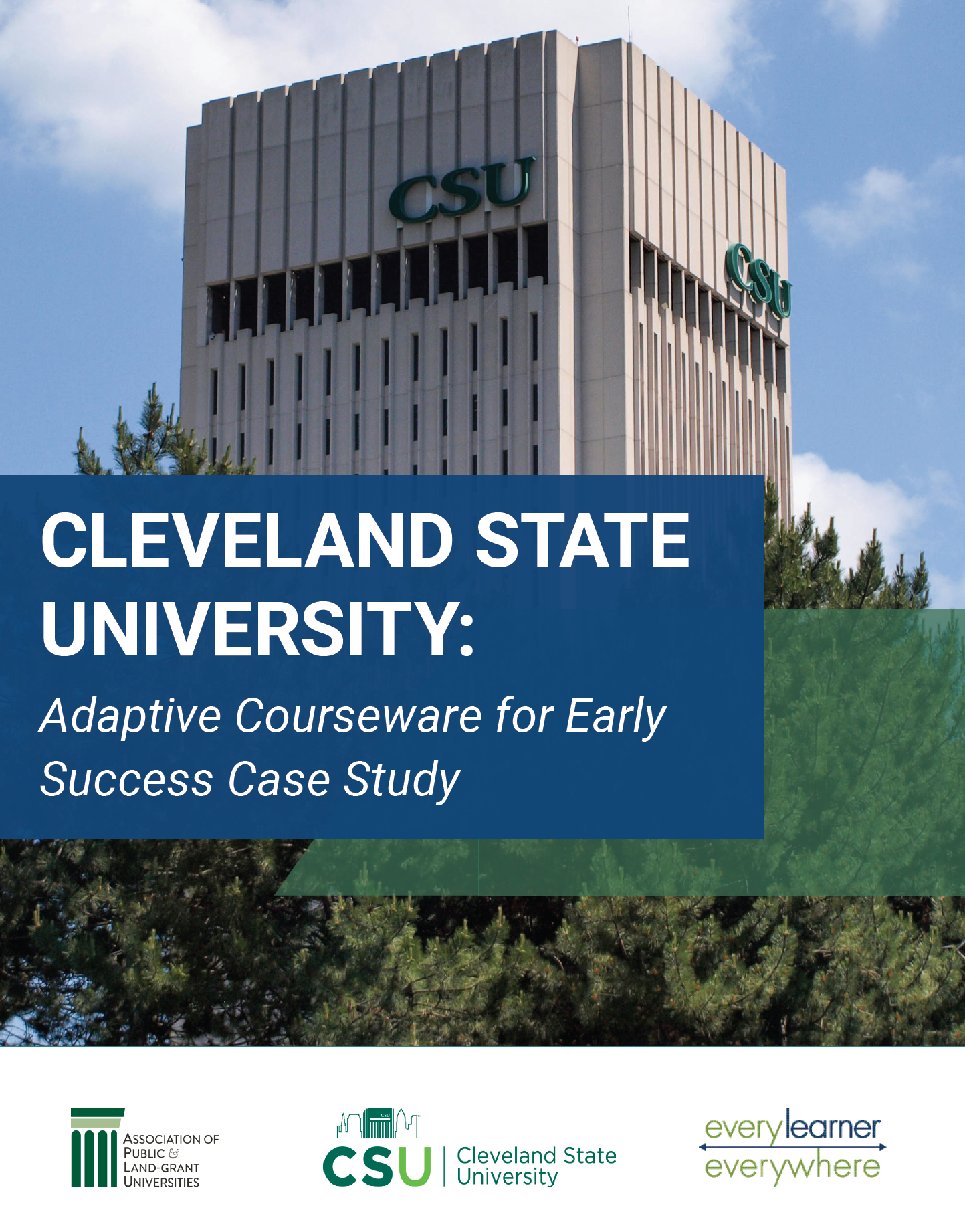
CSU improved and expanded adaptive courseware implementation to support redesign efforts and increase student engagement in chemistry, biology, and math.
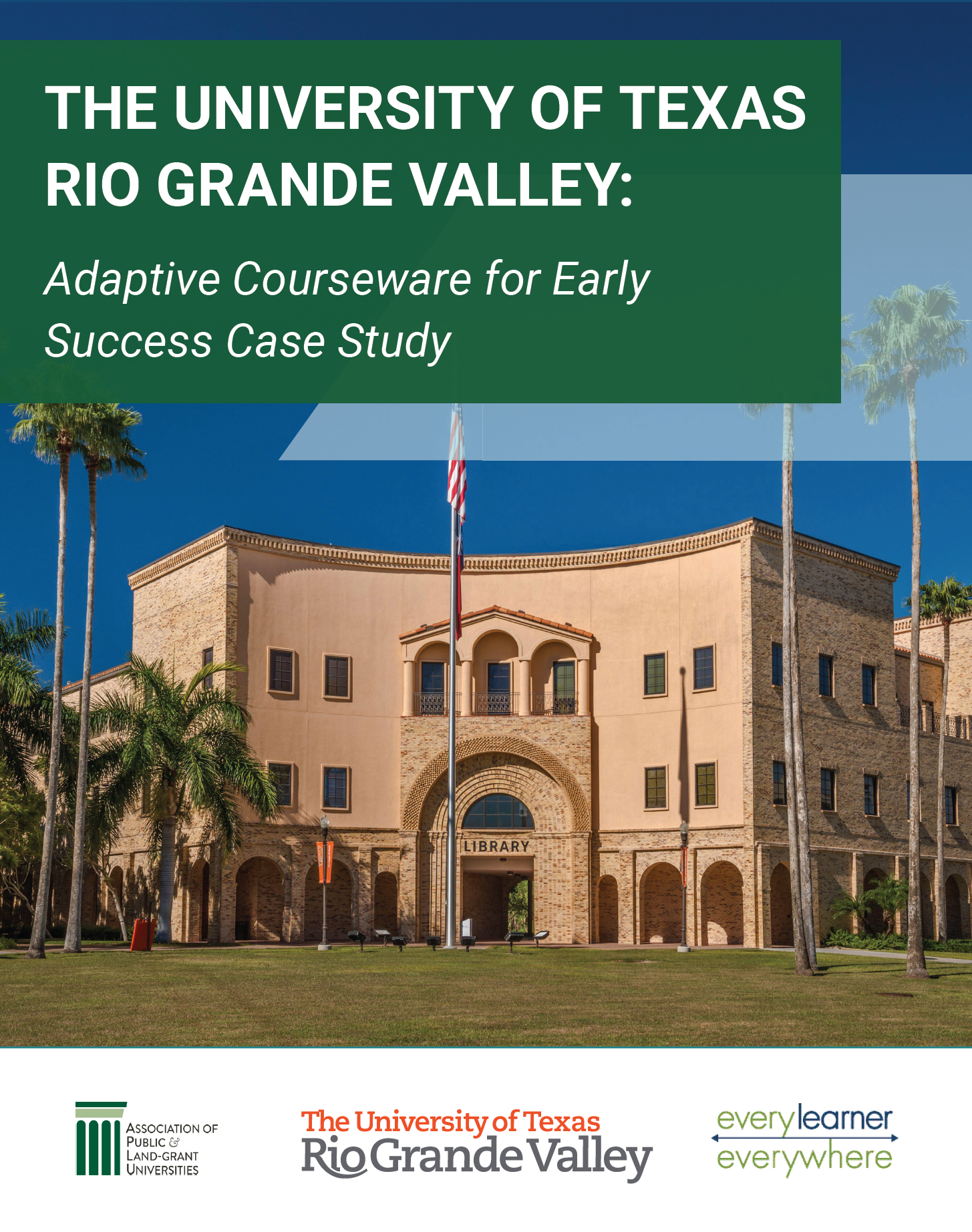
UTRGV faculty from multiple campuses aligned instructional practices and adaptive courseware integration efforts into elementary statistics and college algebra courses.
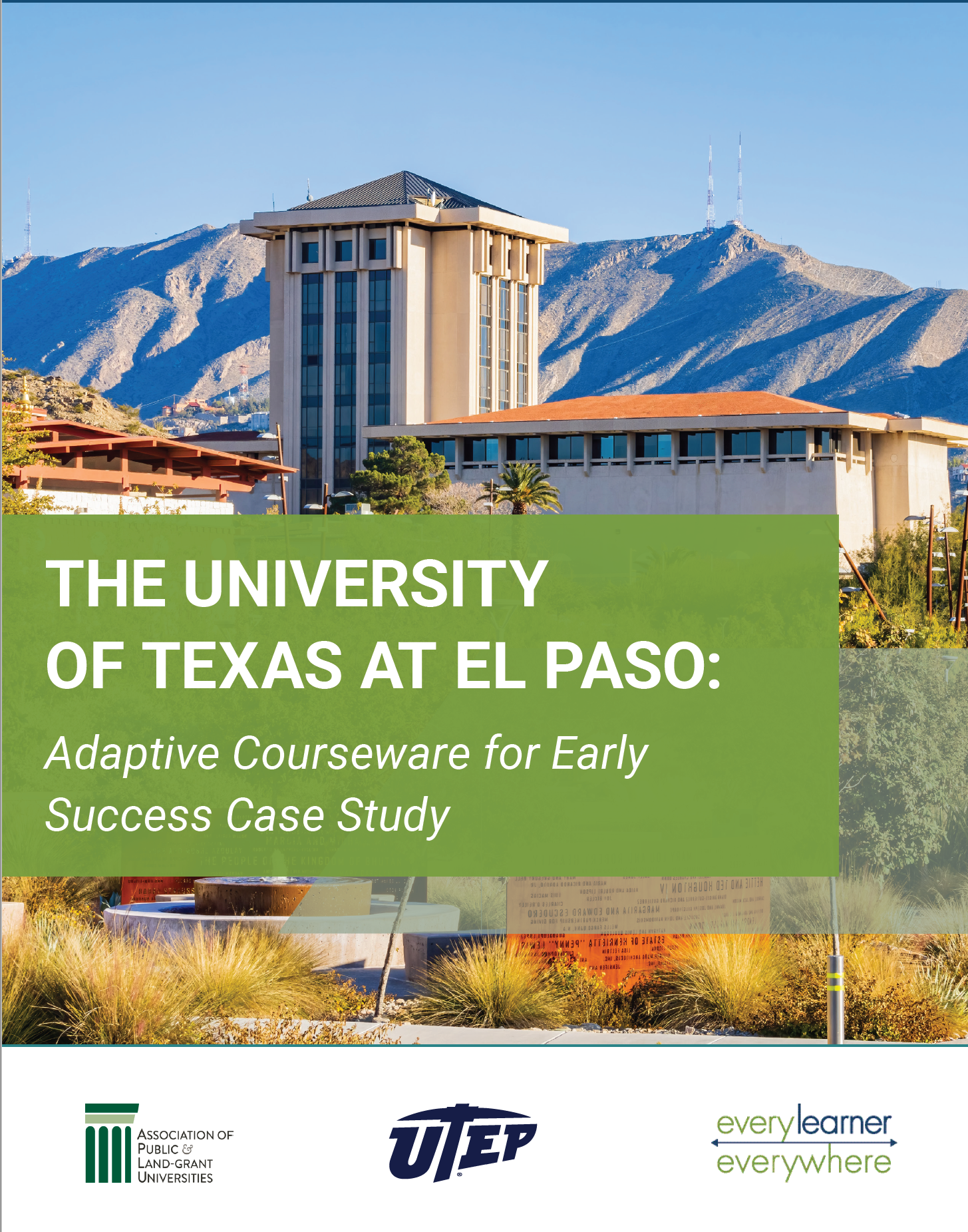
By integrating open education resources with an adaptive learning platform, UTEP improved accessibility and cost to students taking introductory biology courses.
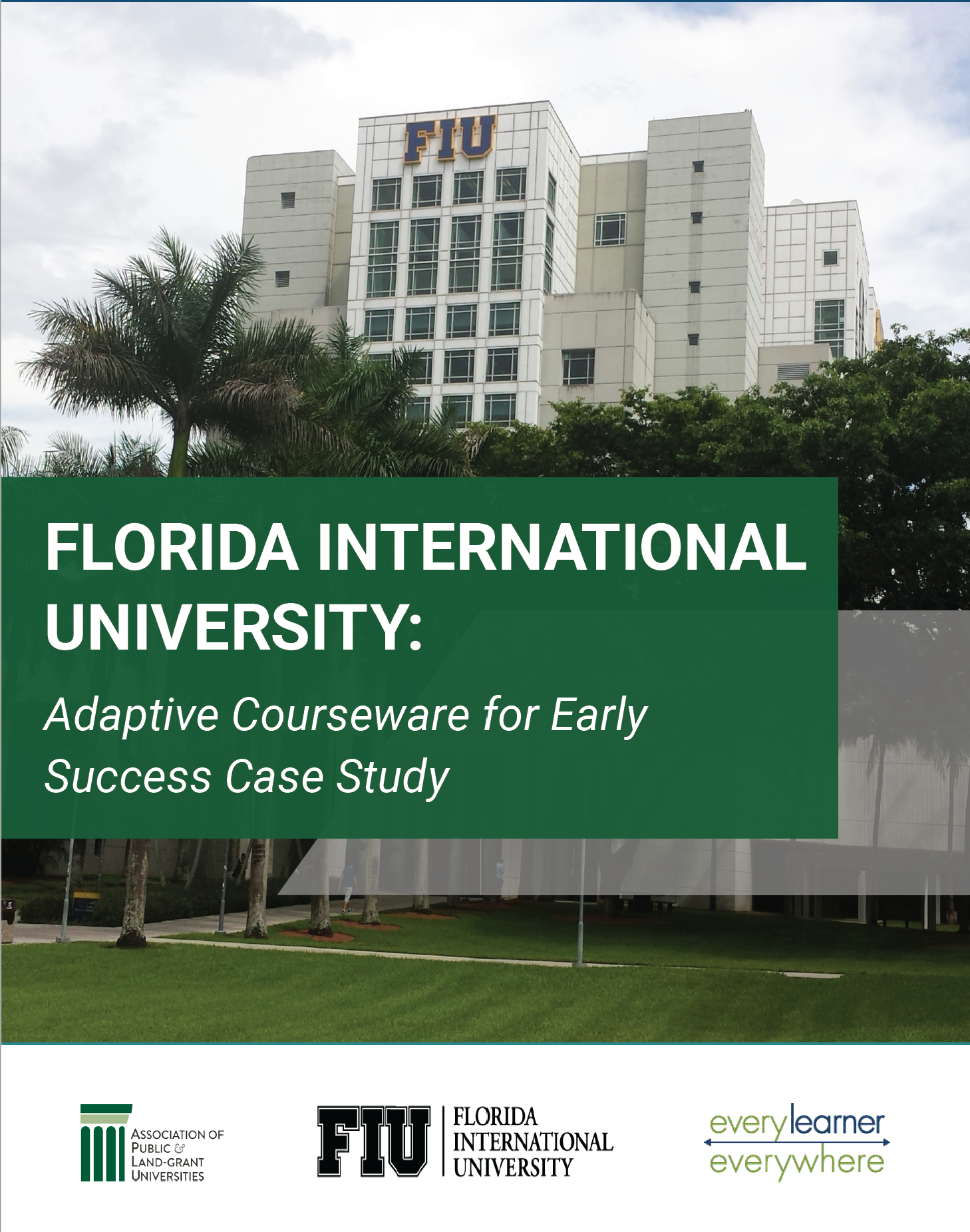
FIU established a highly collaborative, uniquely skilled, cross-functional team to create an effective adaptive tool that was free to engineering students and that could serve as a model for scale.
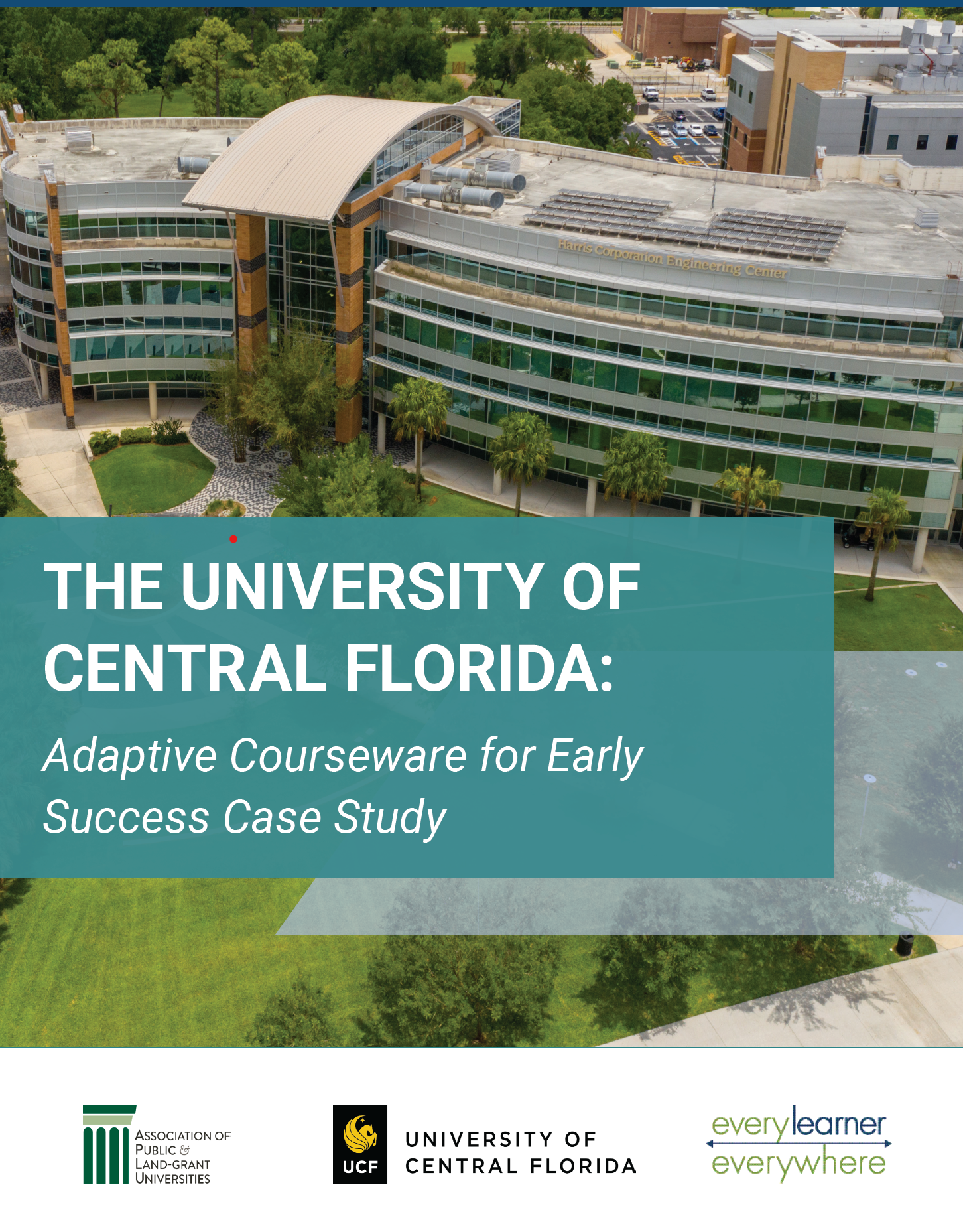
Building on existing resources and faculty support programs, UCF expanded adaptive courseware adoption into physics while prioritizing scaling efforts within the foreign languages department.
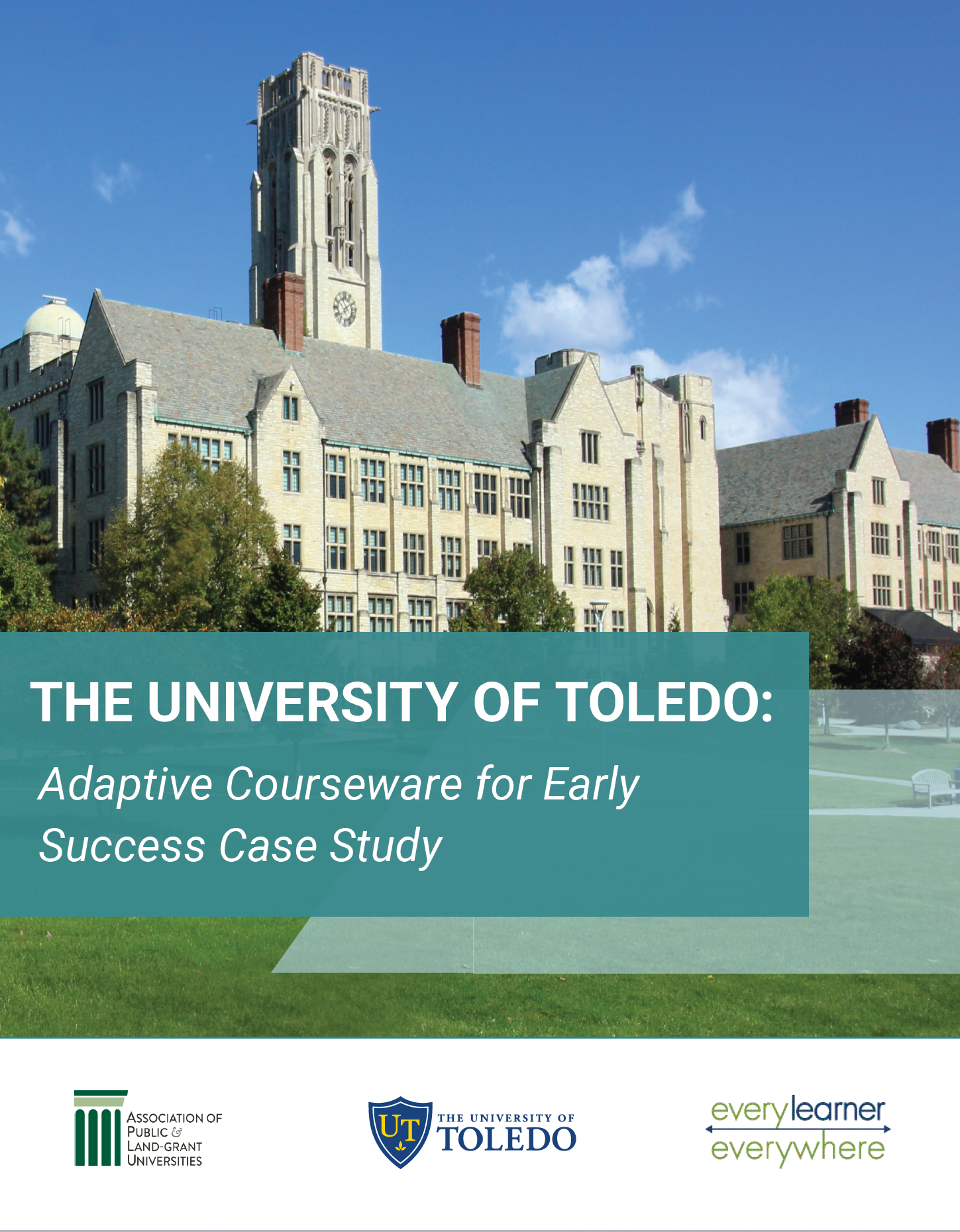
UToledo integrated existing faculty professional learning programming to support student-centered redesign efforts in math, chemistry, and anatomy and physiology classes.
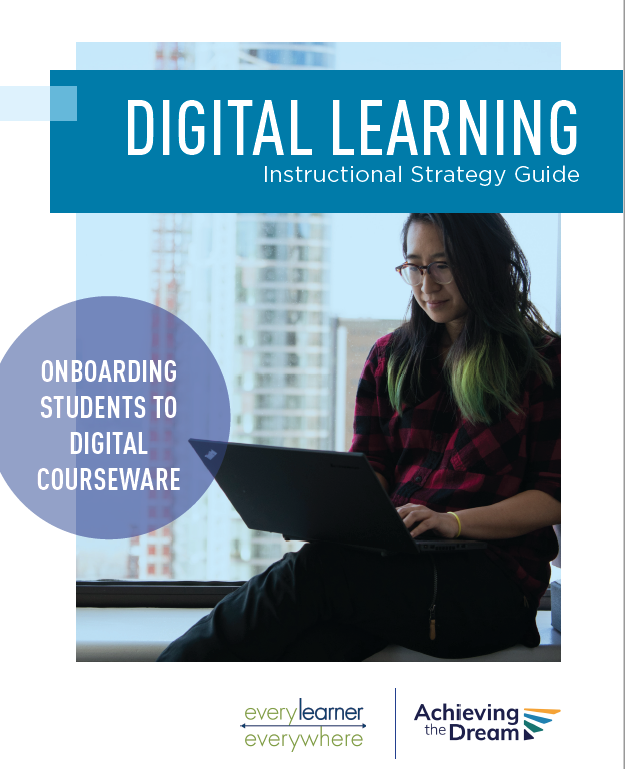
This strategy guide is a resource for faculty to onboard students to using digital courseware as part of the learning experience.
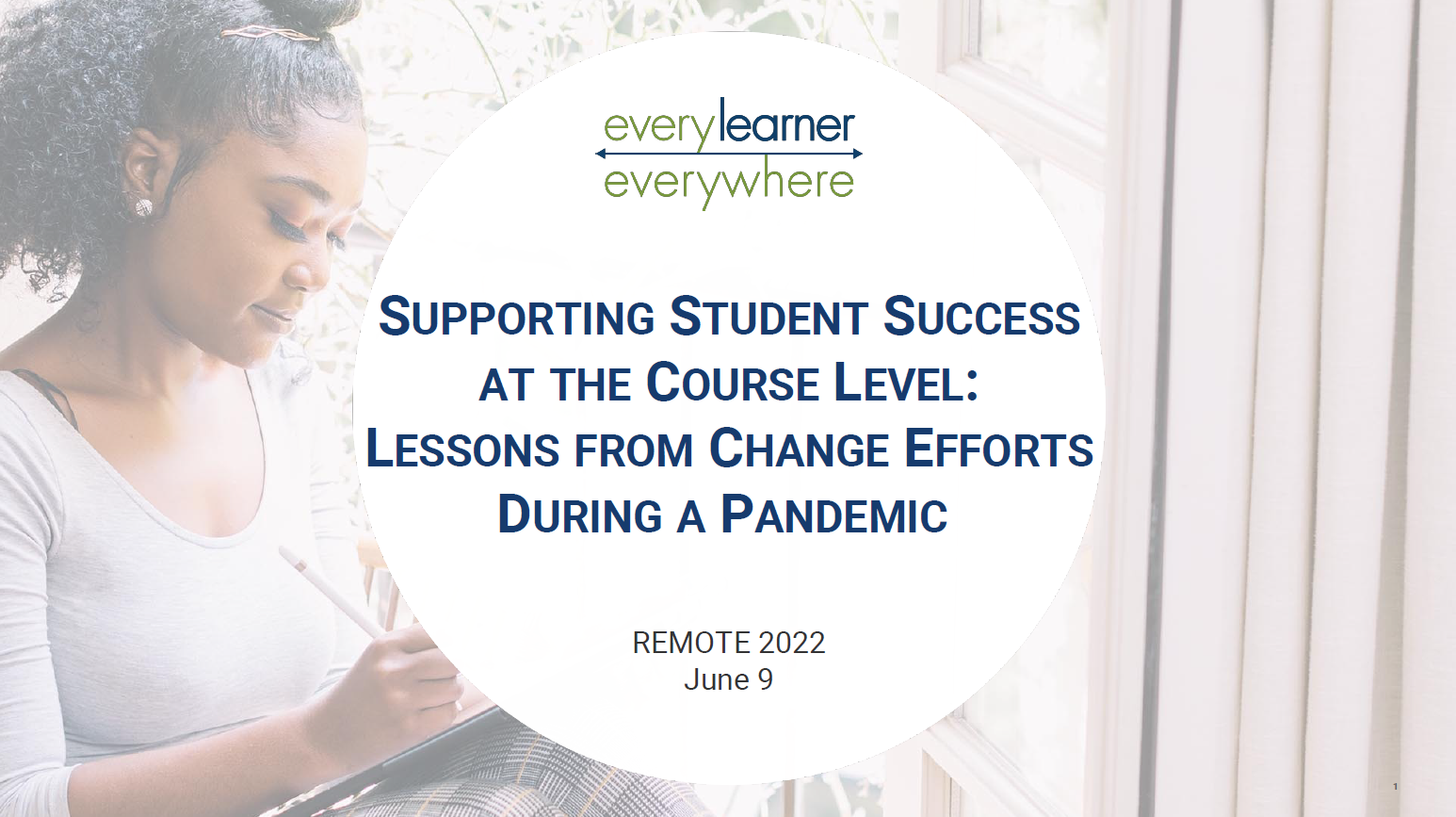
Learn how digital learning tools can give both faculty and students an edge in a time of academic upheaval.
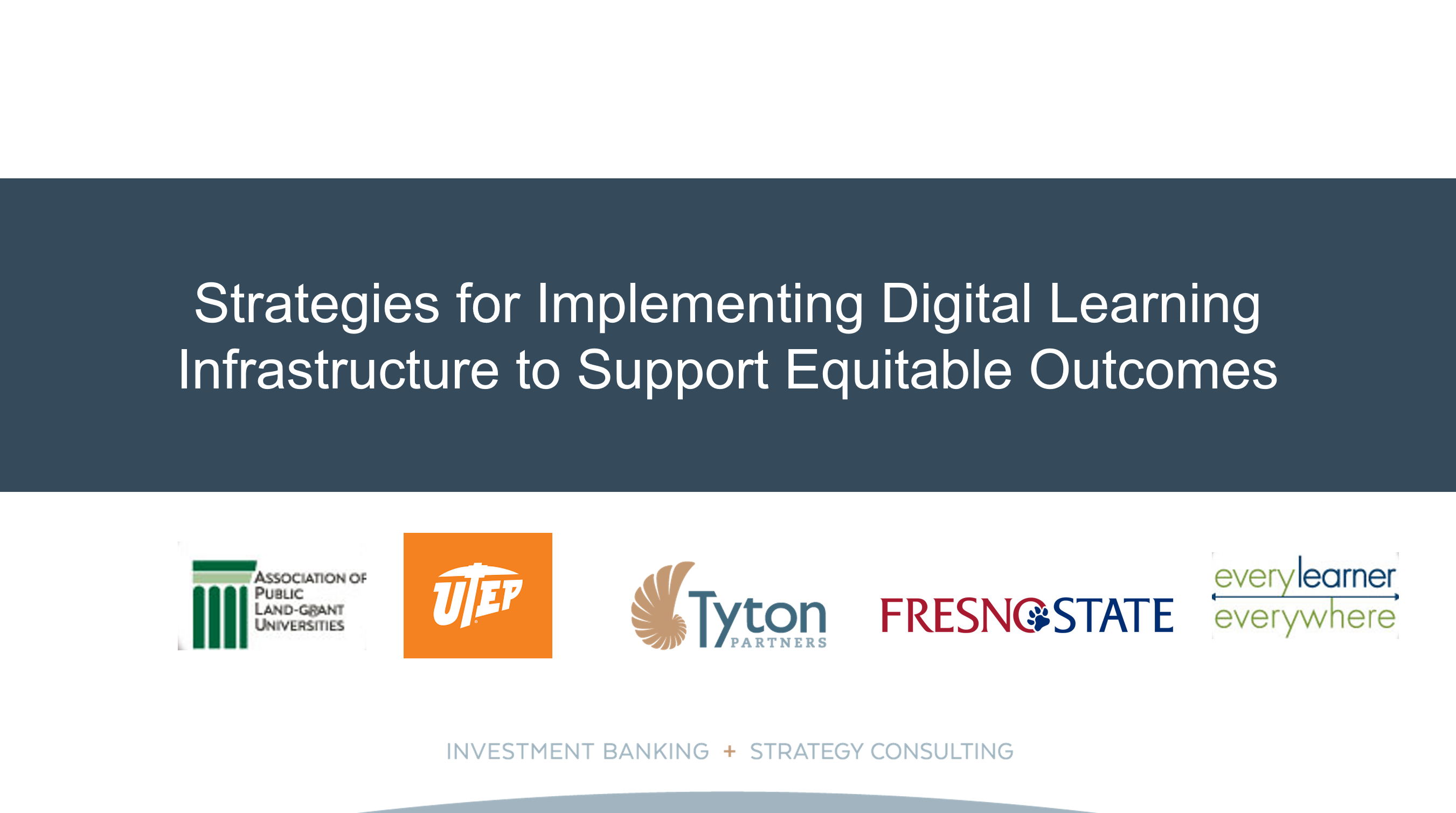
Representatives from institutions that implemented digital learning discuss how these technologies improved student success in lower level courses.
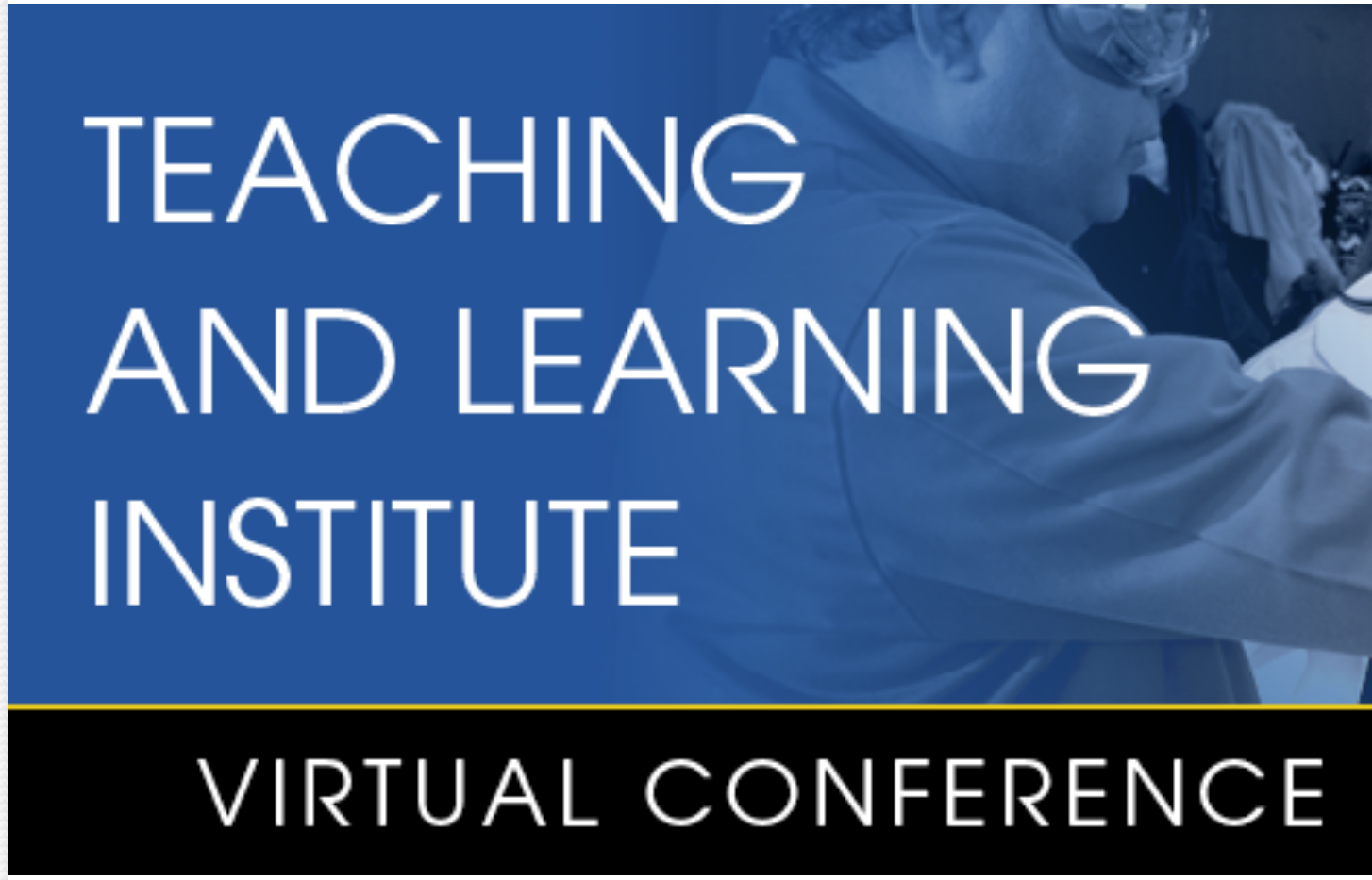
This session will include administrator, faculty and student perspectives of the benefits and challenges of integrating active and adaptive pedagogy into gateway courses.
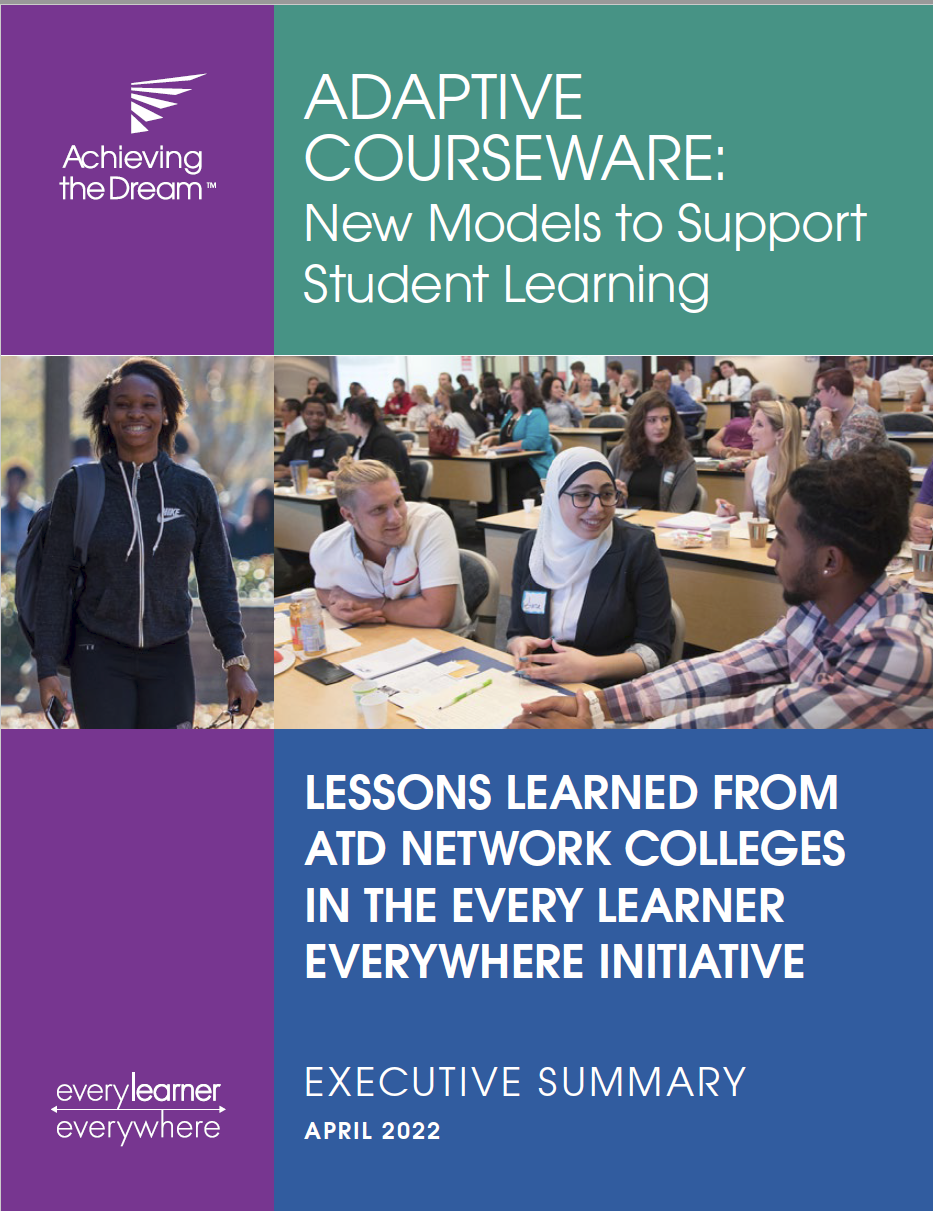
This report is an executive summary of the findingins following the implementation of digital learning tools at seven community colleges.
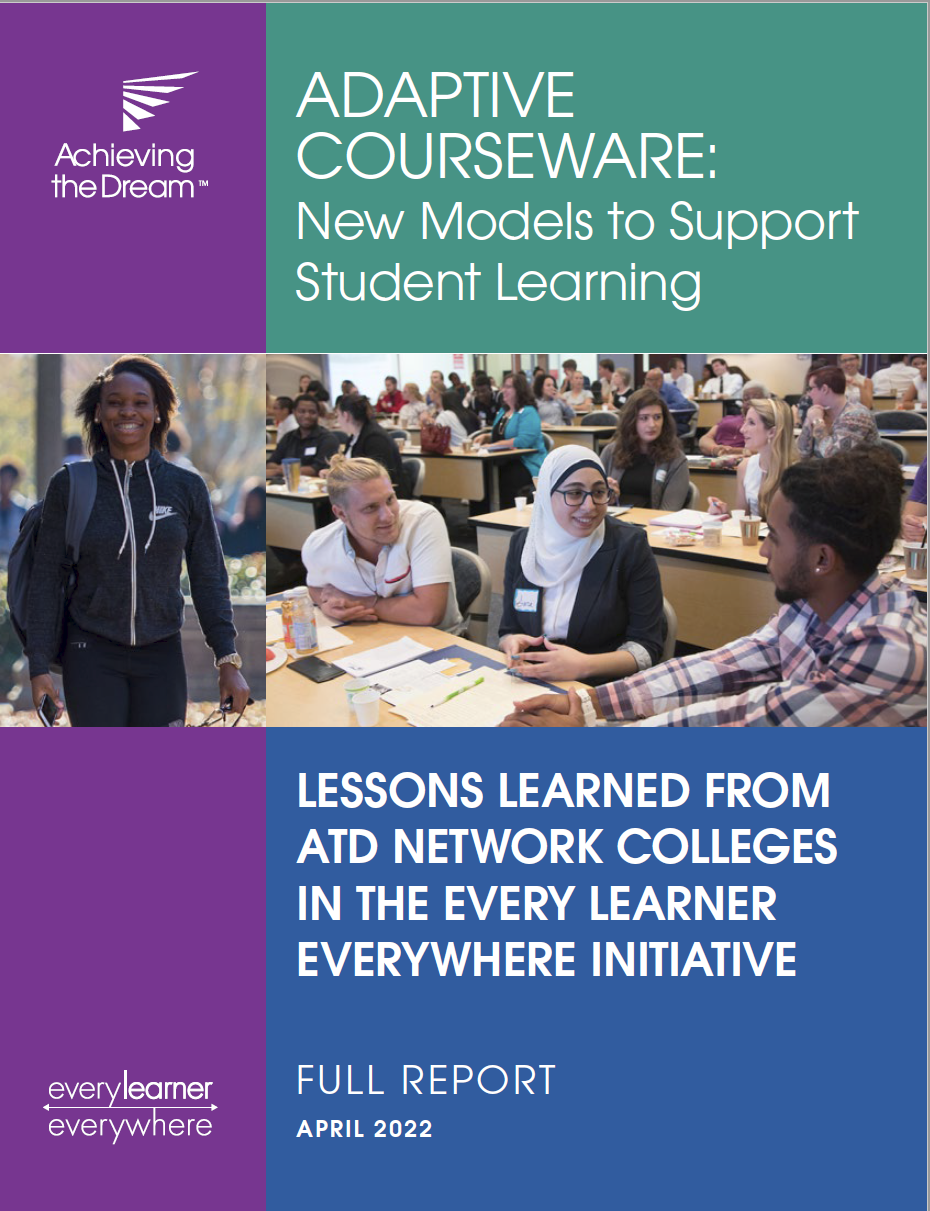
Full report of digital learning adoption in seven community colleges in the ATD network.
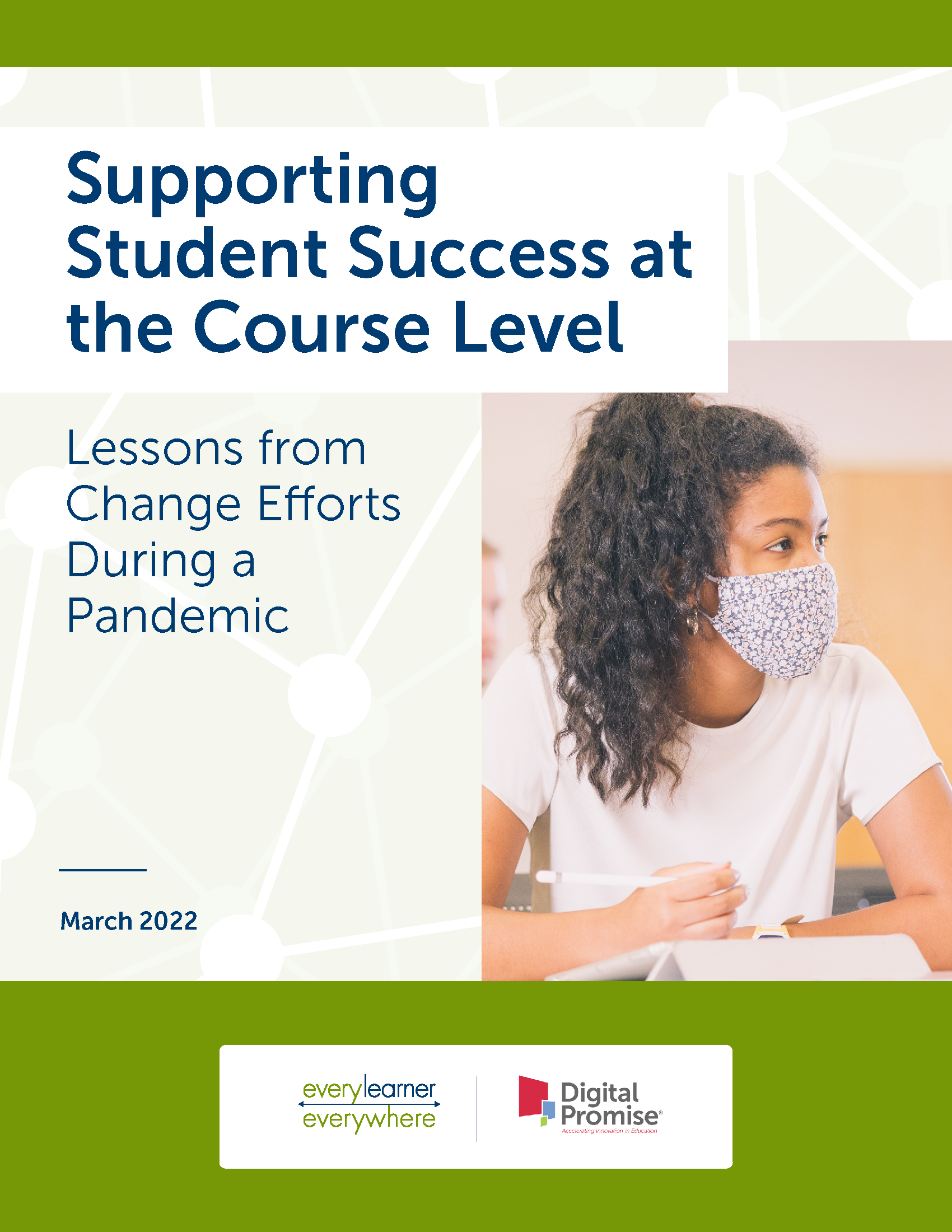
This report describes the Every Learner Everywhere supports for lighthouse institutions, the experiences and accomplishments of course improvement teams at those institutions, and implications for future efforts to improve teaching and learning practices in higher education.
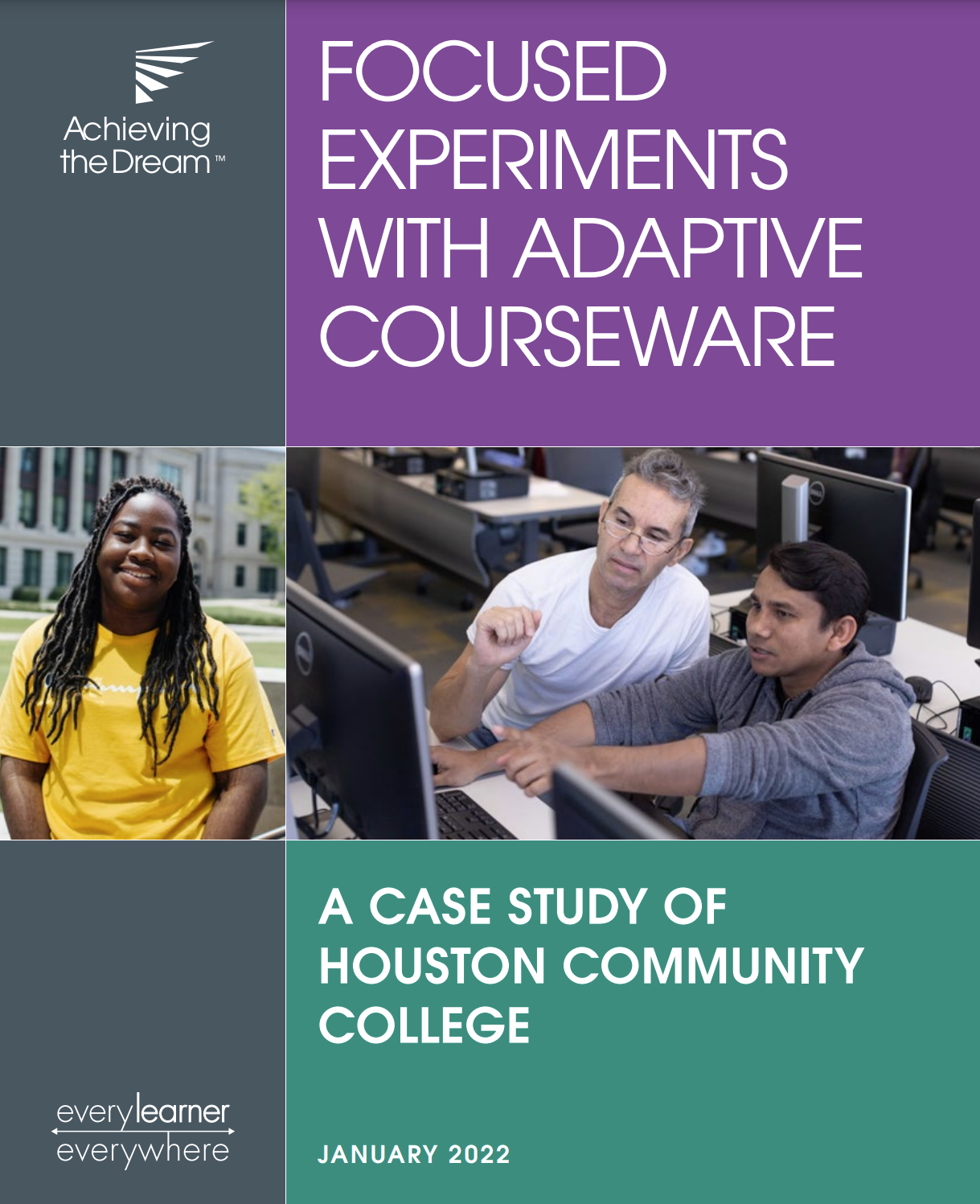
Faculty at HCC led efforts to implement adaptive courseware in introductory mathematics and economics courses.
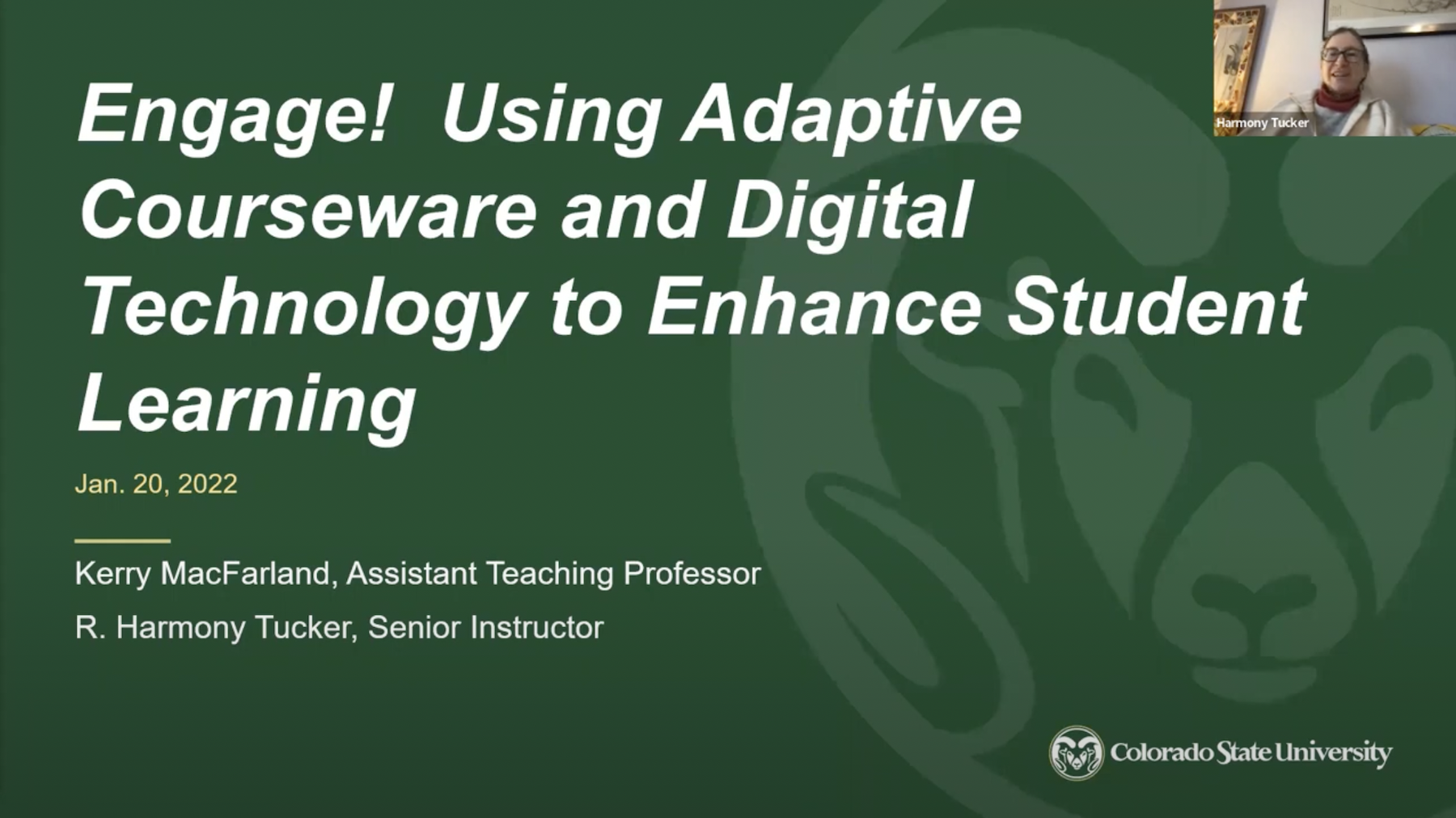
Chemistry faculty use adaptive learning platforms, static homework, in-class active learning activities, and digital monitoring to enhance student learning and engagement.
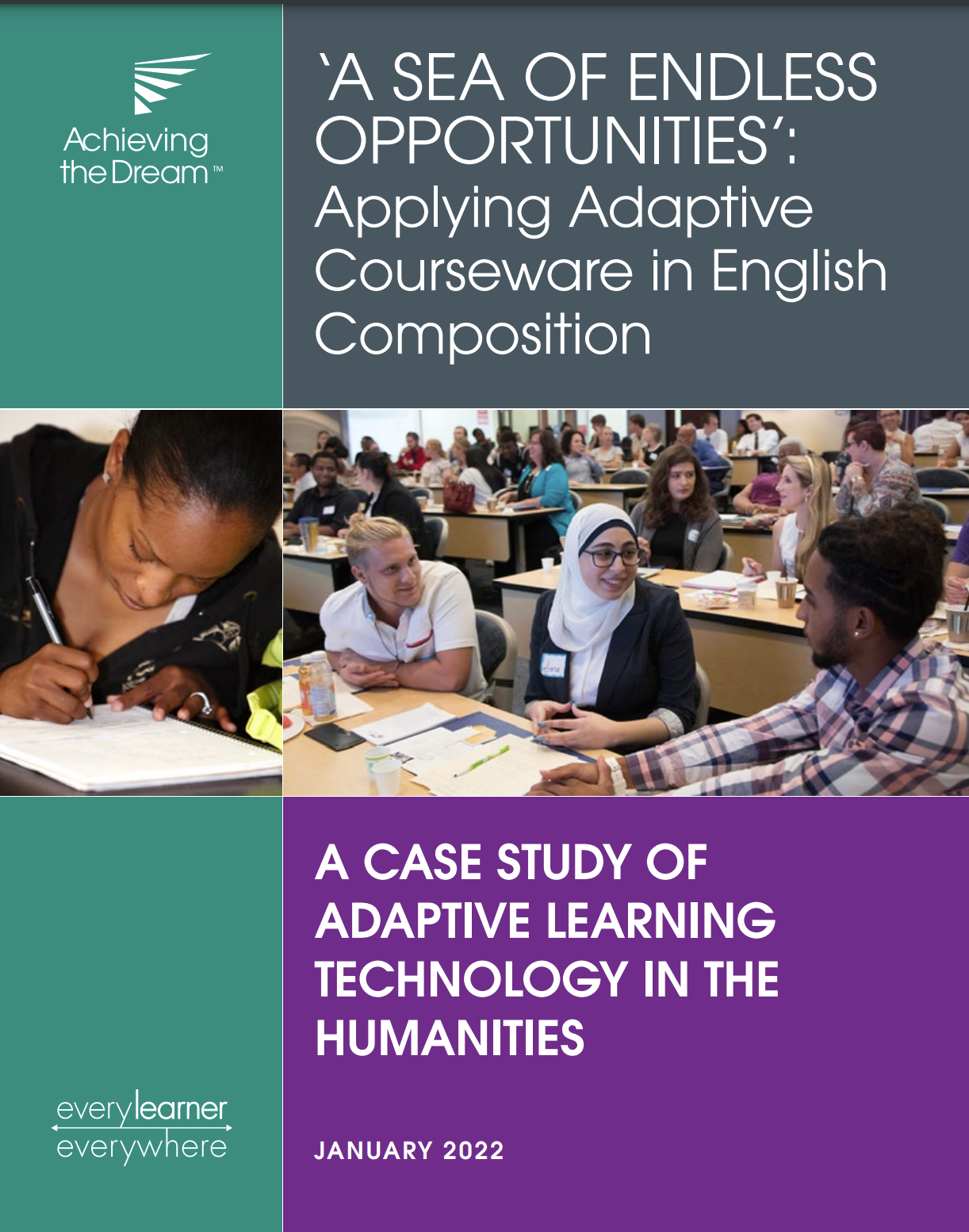
A case study on applying adaptive learning technology in English Composition to help more students persist and succeed.

A case study on integrating adaptive tools into course redesign provides instructional design support and integrated adaptive technology.
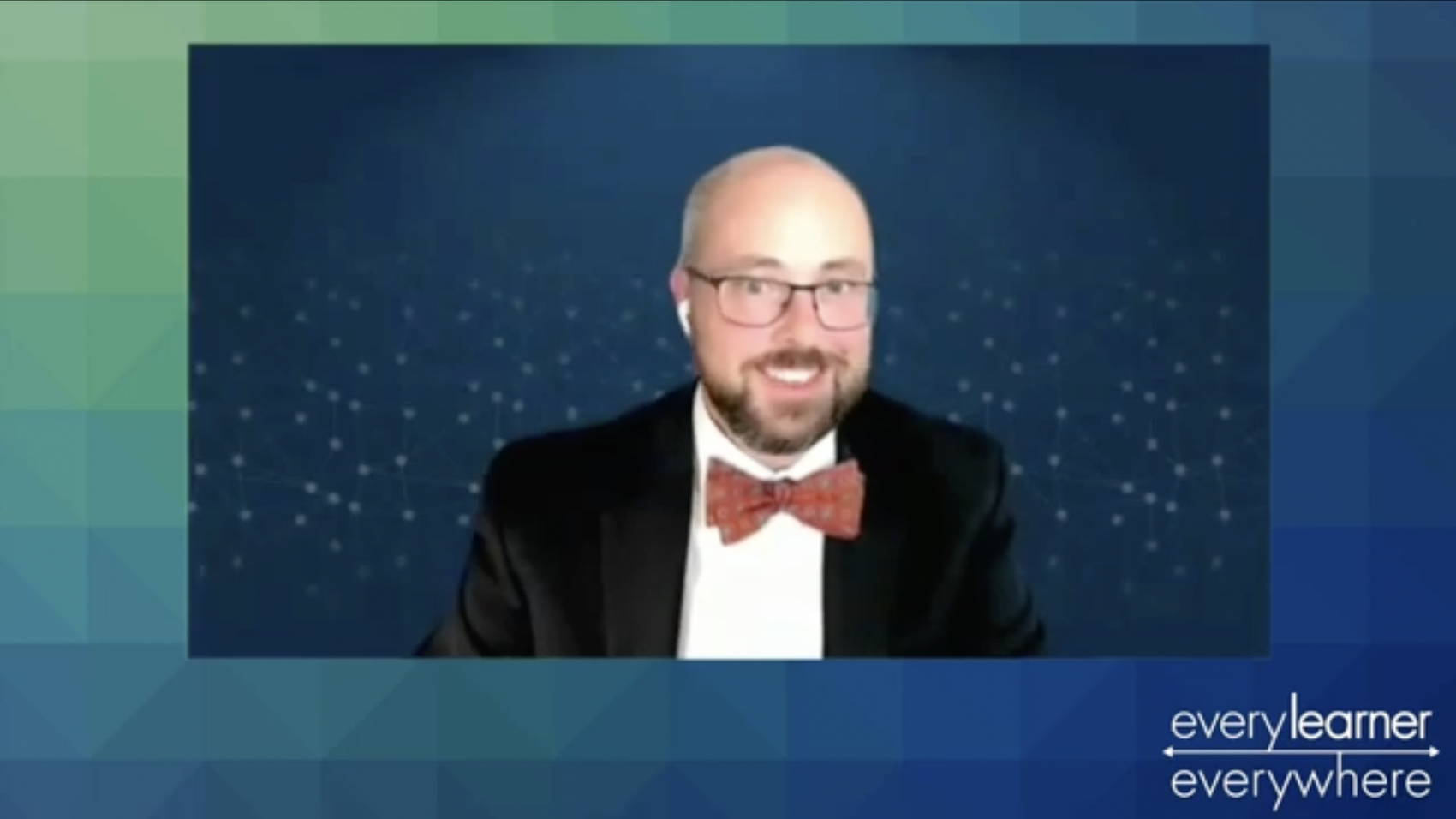
Van Davis, Every Learner Everywhere shares Key Takeaways & Call to Action from ADAPT 2021.
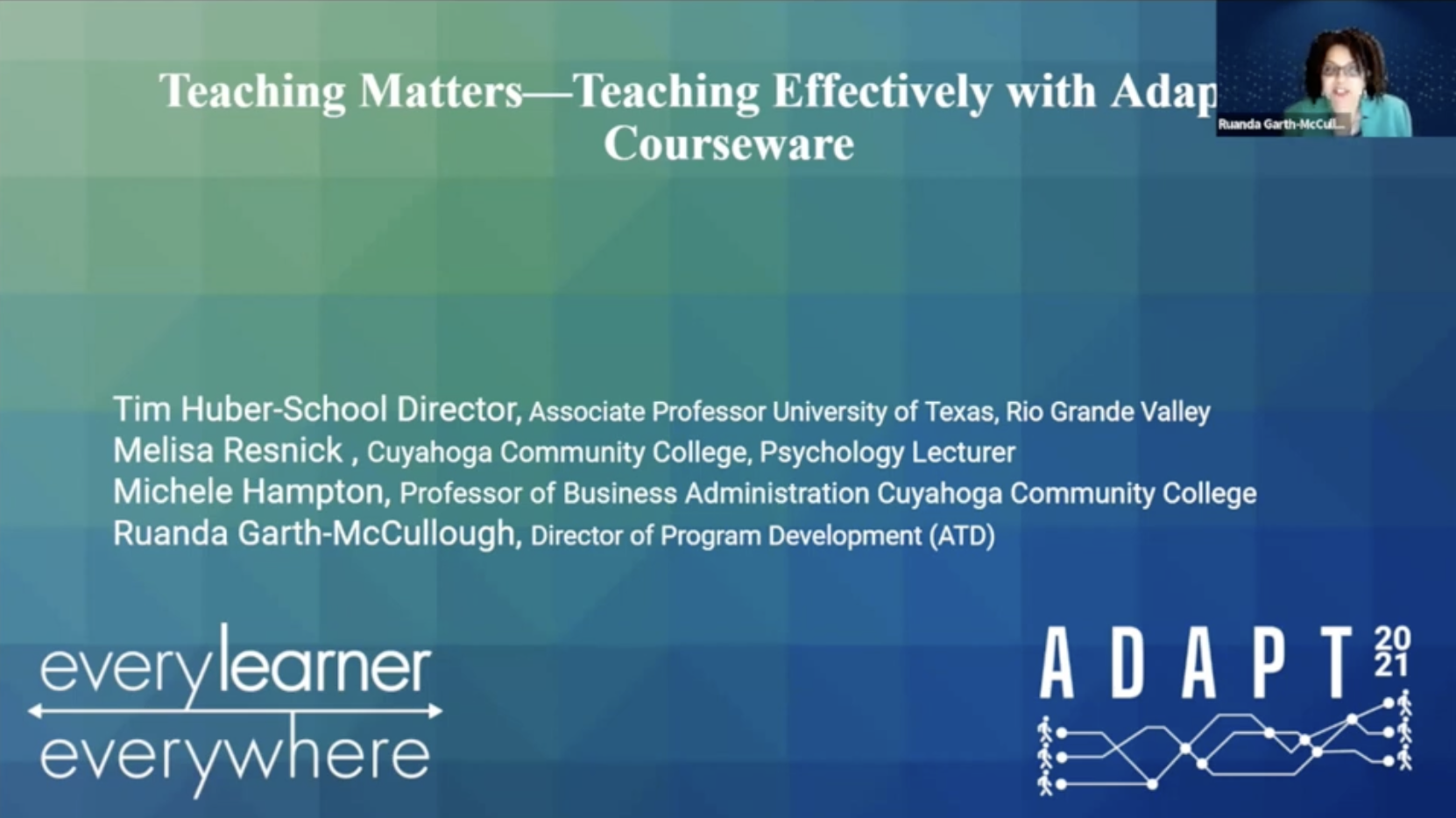
Faculty discuss course design choices and pedagogical practices that accompany the effective implementation of adaptive courseware.

Explore how adaptive learning tools and practices can transform math courses to increase student success.
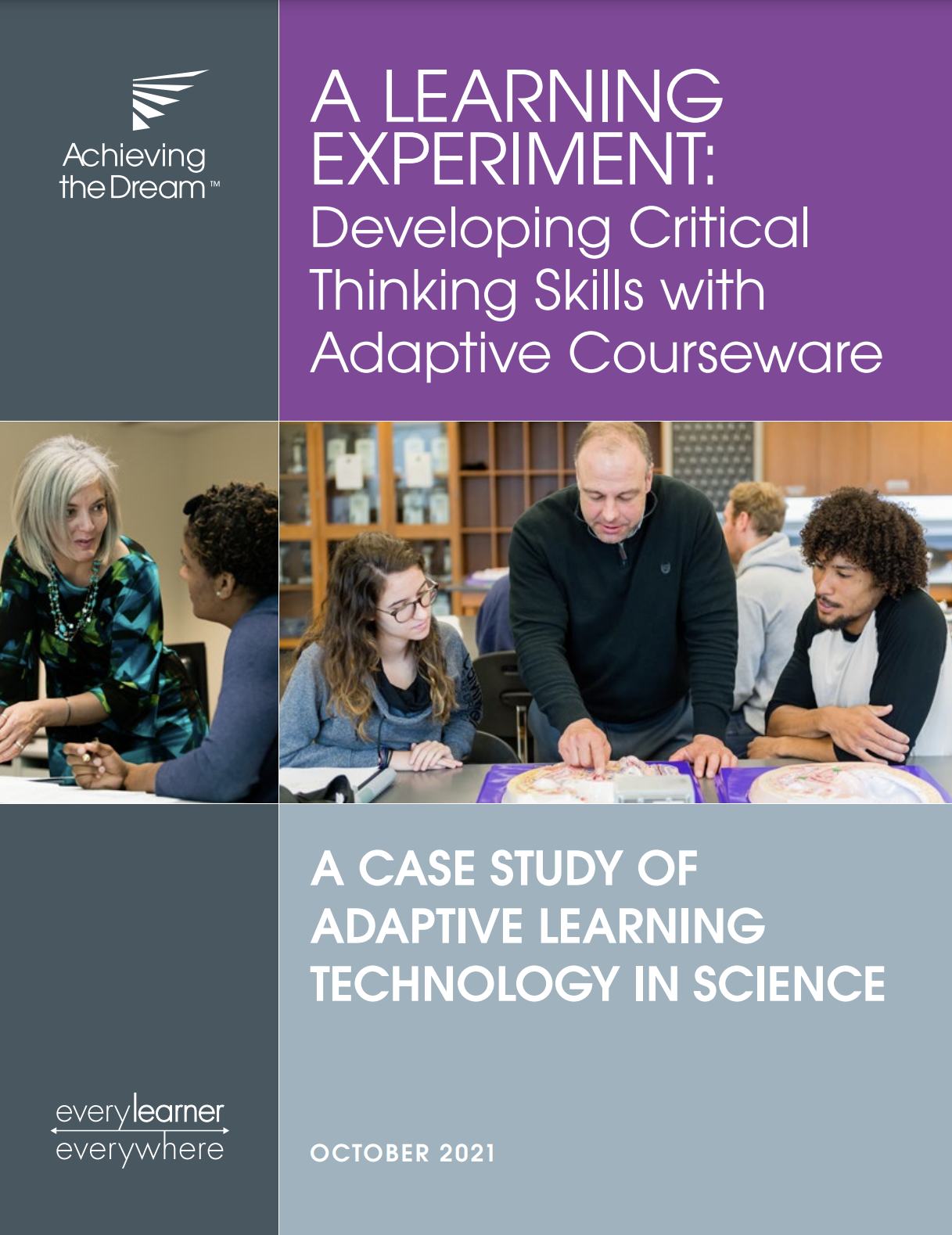
The study suggests that adaptive learning technology helped students who need support with prerequisite concepts, provided tools to help guide students through complex, multistep processes, gave faculty insights into concepts students were struggling with, and reduced the cost of course materials.
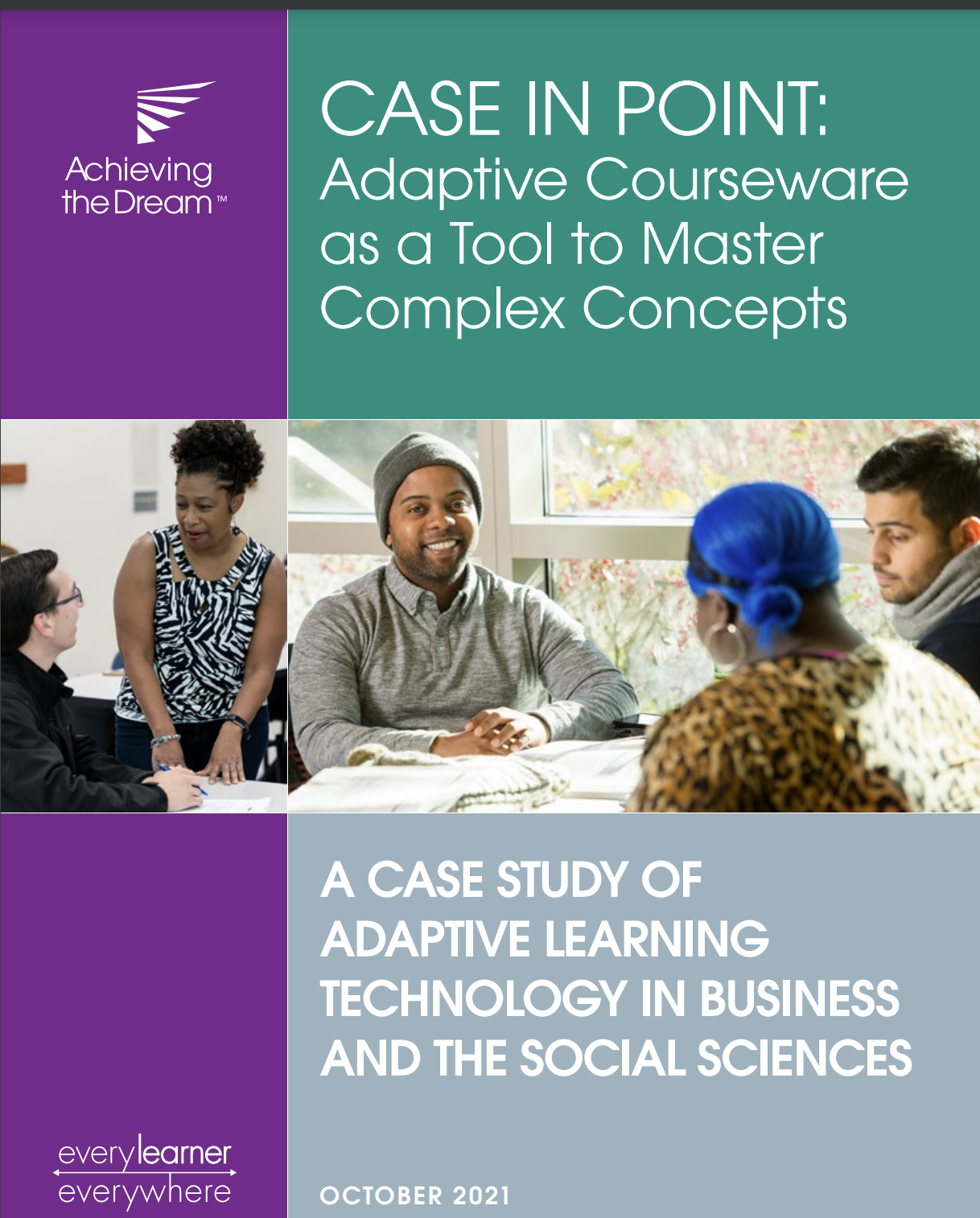
This case study examines the efforts at three of the seven ATD network colleges participating in the Every Learner Everywhere initiative who focused on these disciplines as part of their efforts to implement adaptive courseware as a tool in gateway courses to help more students persist and succeed.
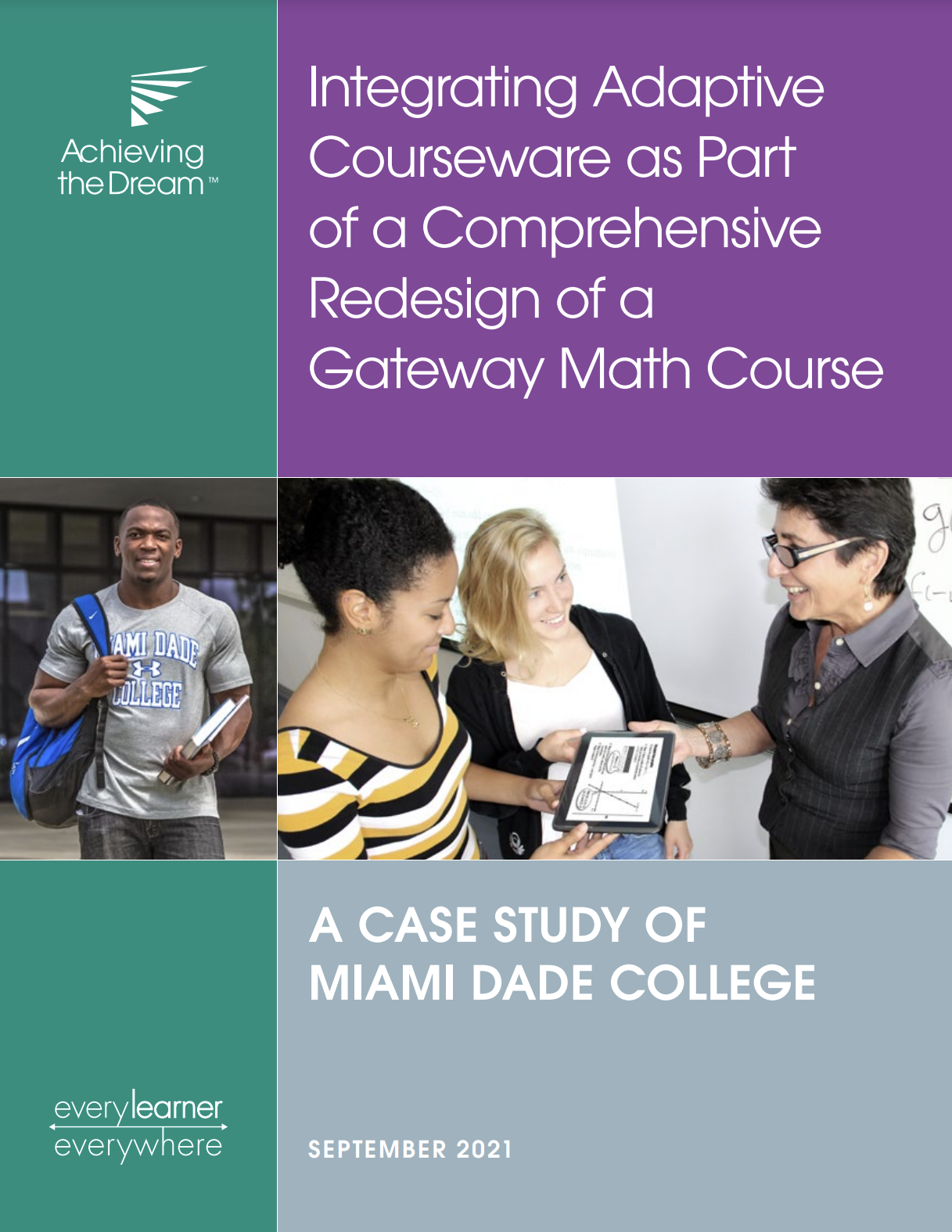
Miami Dade College: Integrating Adaptive Courseware as Part of a Comprehensive Redesign of a Gateway Math Course
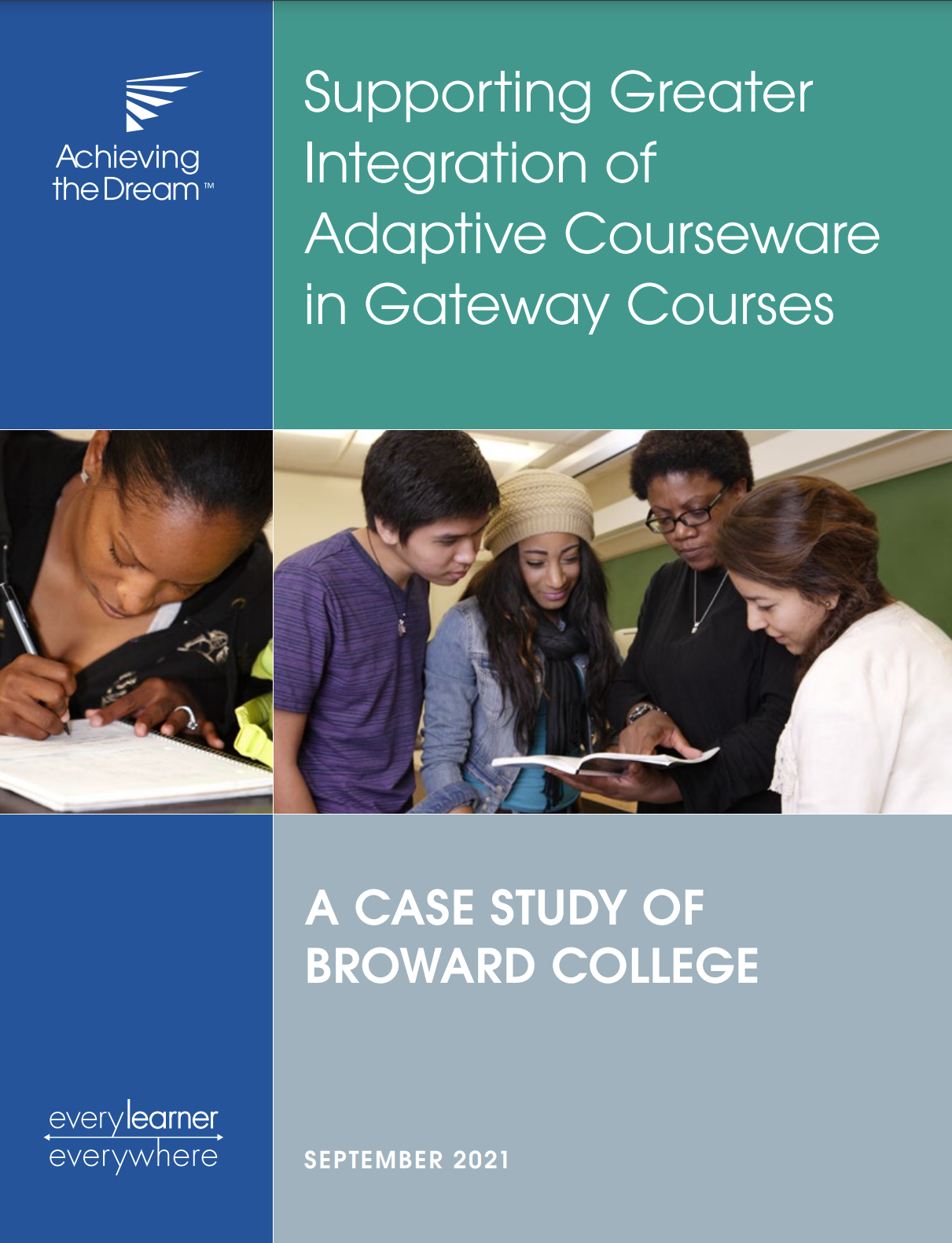
Faculty at Broward College led implementation and integration of adaptive courseware efforts in introductory course design and activities.
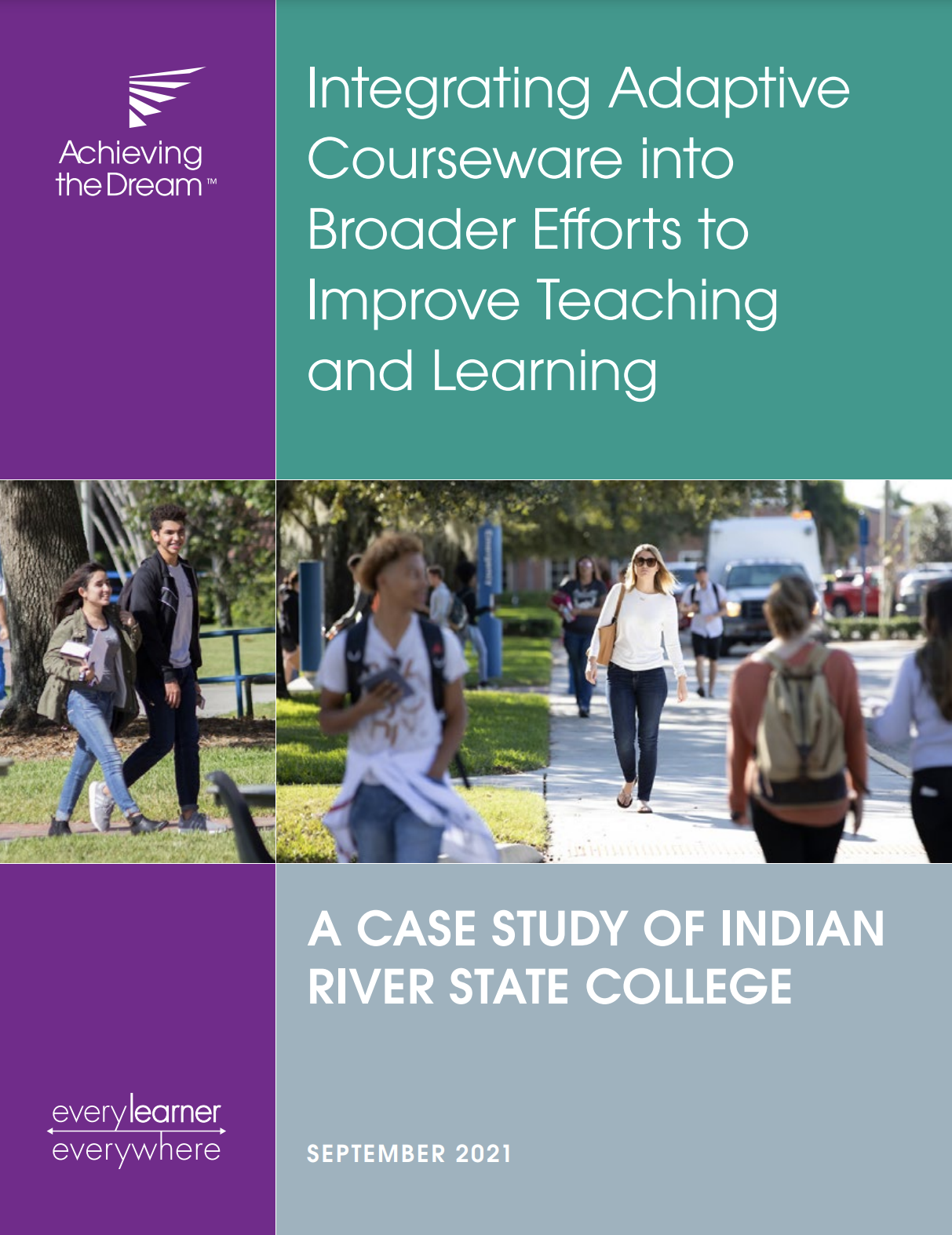
Indian River State College considered adaptive courseware a potentially powerful tool in its ongoing efforts to improve teaching and learning in online instruction and overall engagement and outcomes for students in math, physical sciences, and English.
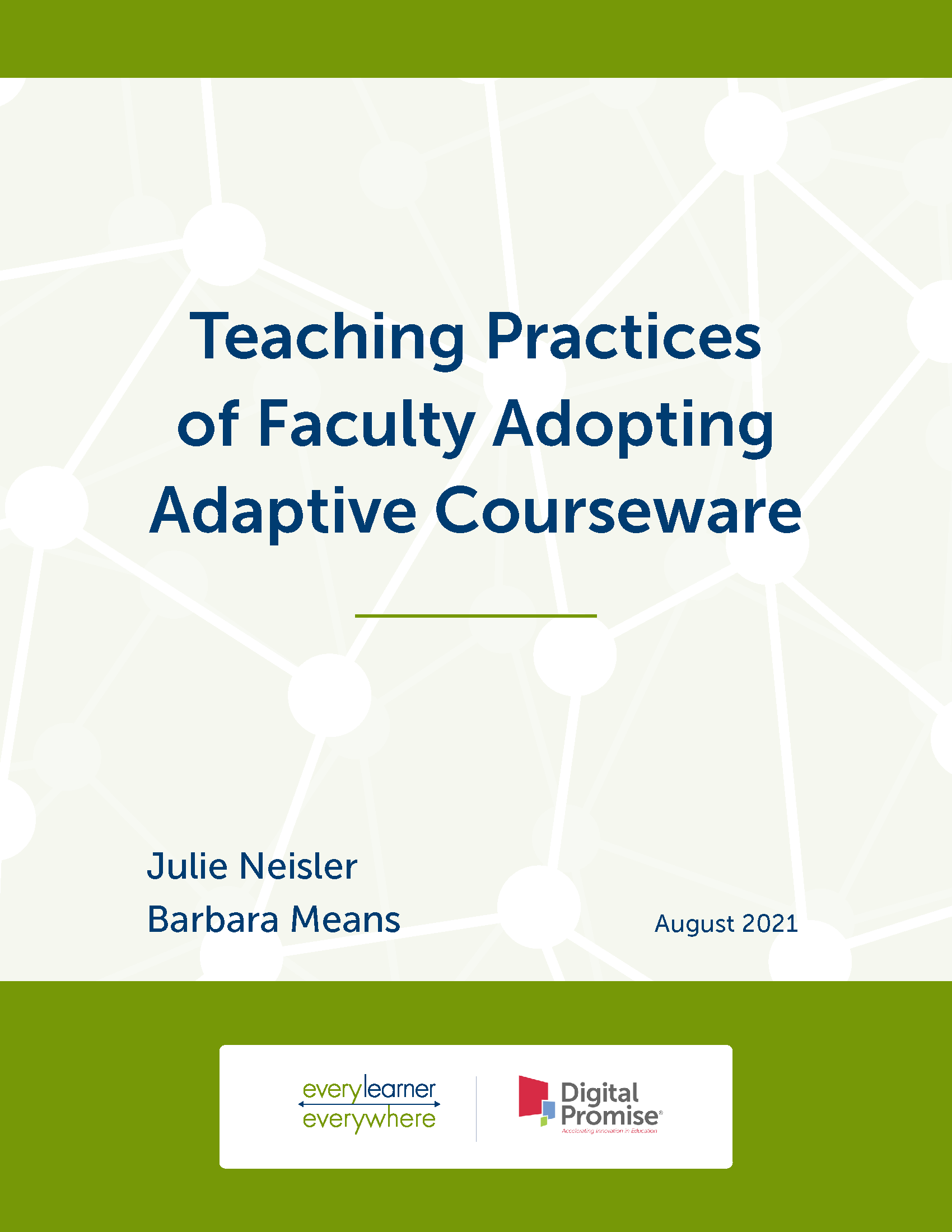
In fall 2020, Digital Promise administered a survey to a group of educators at selected two-year colleges and four-year universities to better understand the teaching practices they employ and the ways in which they use adaptive courseware in their gateway courses.
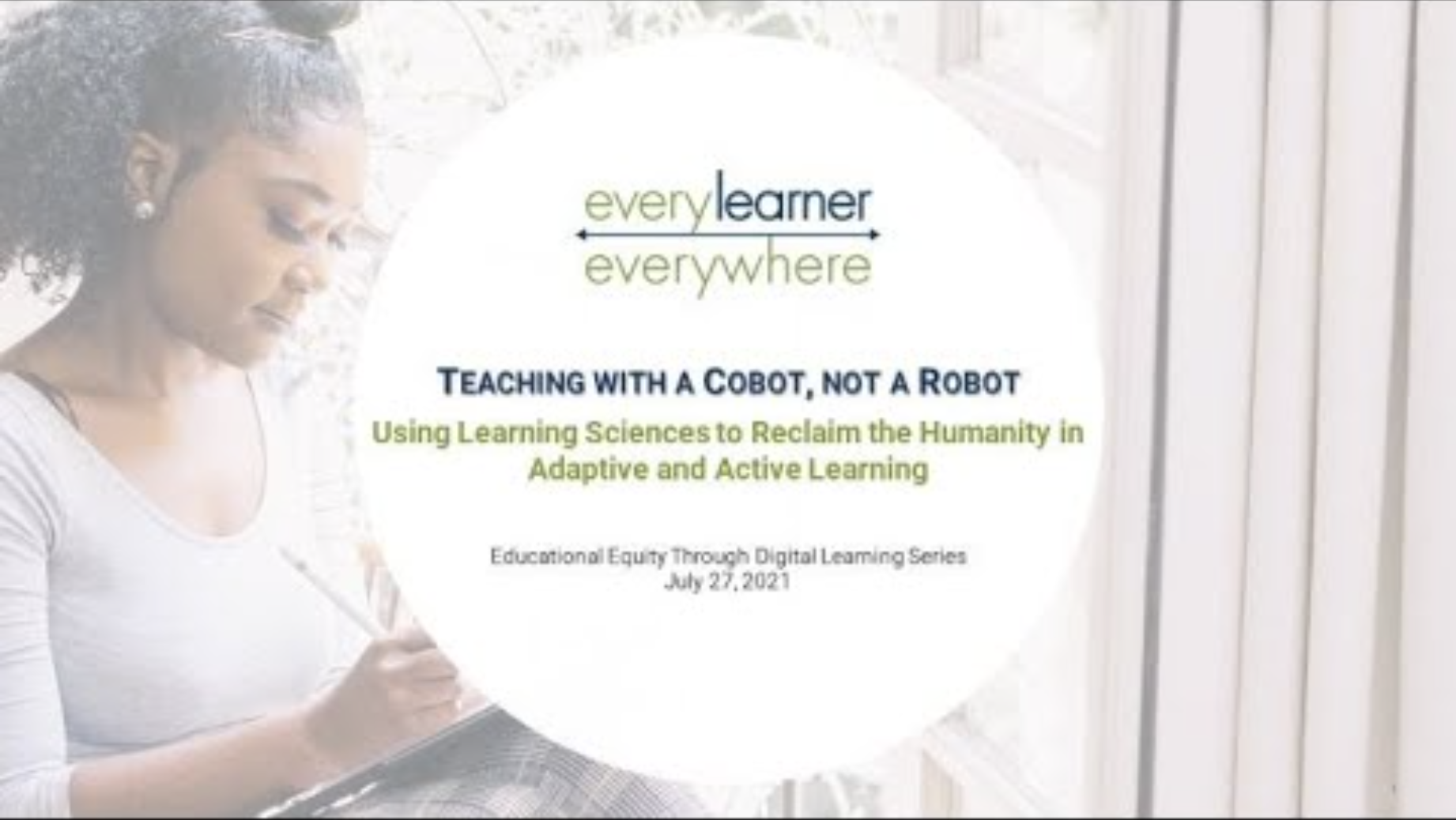
This presentation explores four dimensions of motivation and feedback, two learning science pillars that engage students in the learning process and fosters long-term memories with active and adaptive learning.
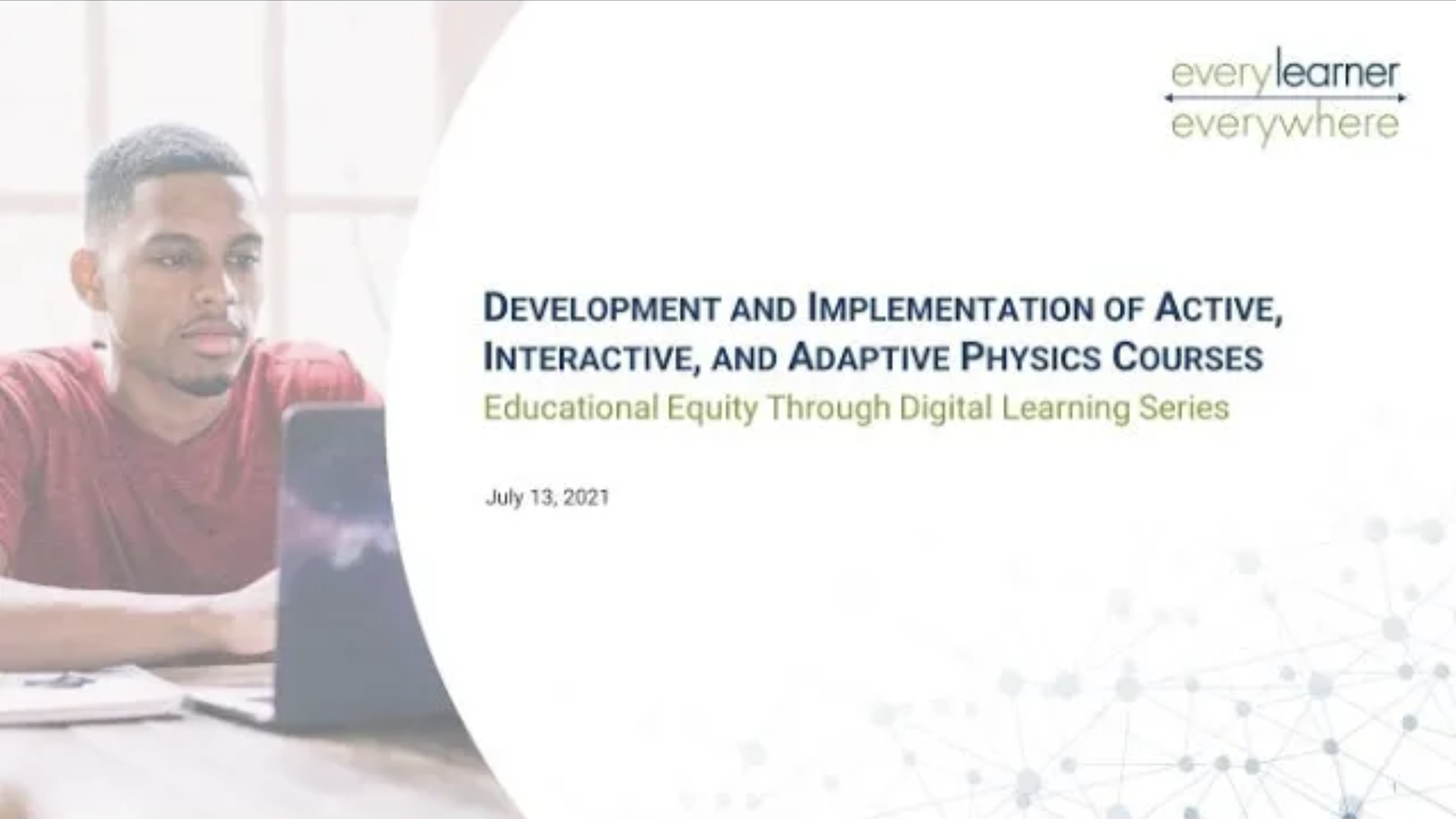
Faculty share experiences of developing and implementing active, interactive, and adaptive introductory physics courses. The design allows students to work at their own pace, choosing support items presented to them via the adaptive feature of the course, and explore concepts through simulations with activities.
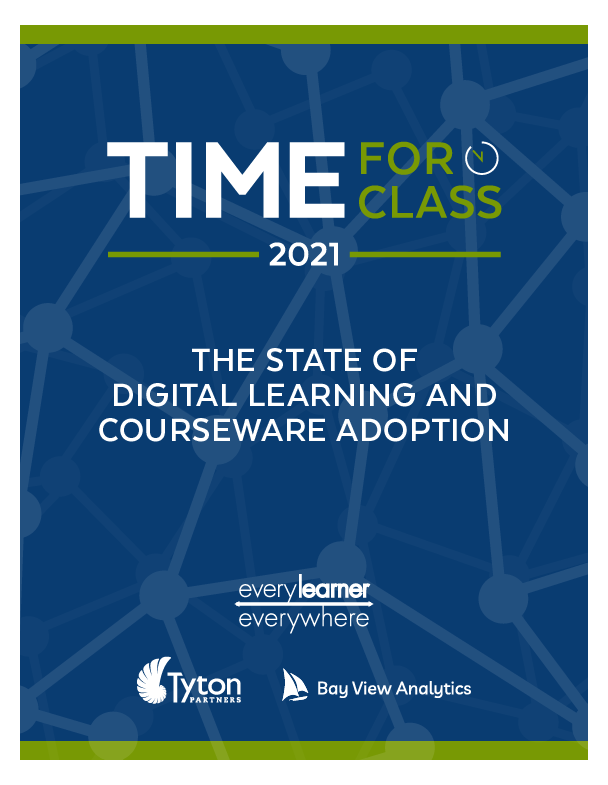
Time for Class is a comprehensive longitudinal survey of 4,000+ higher education faculty and administrators, fielded since 2014 by Tyton Partners.
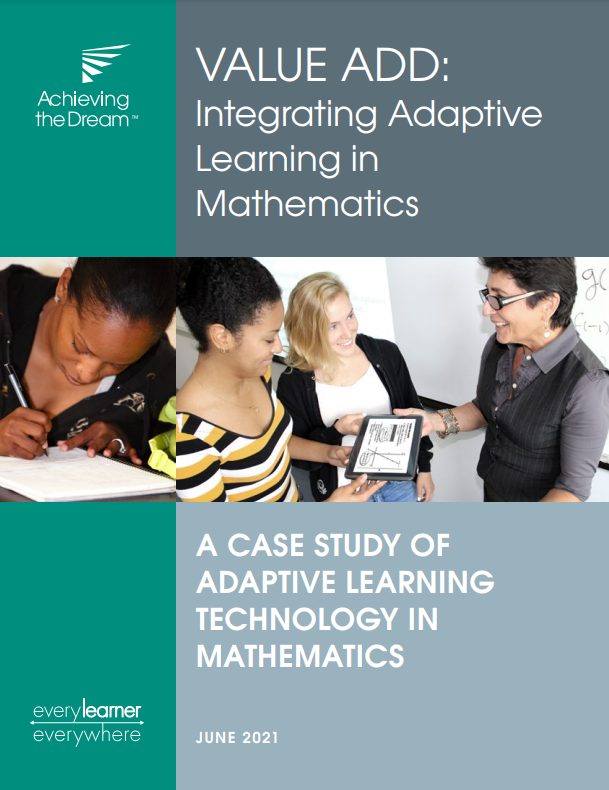
Seven colleges implement adaptive courseware in gateway math courses and find it is a necessary corequisite in supporting student success.
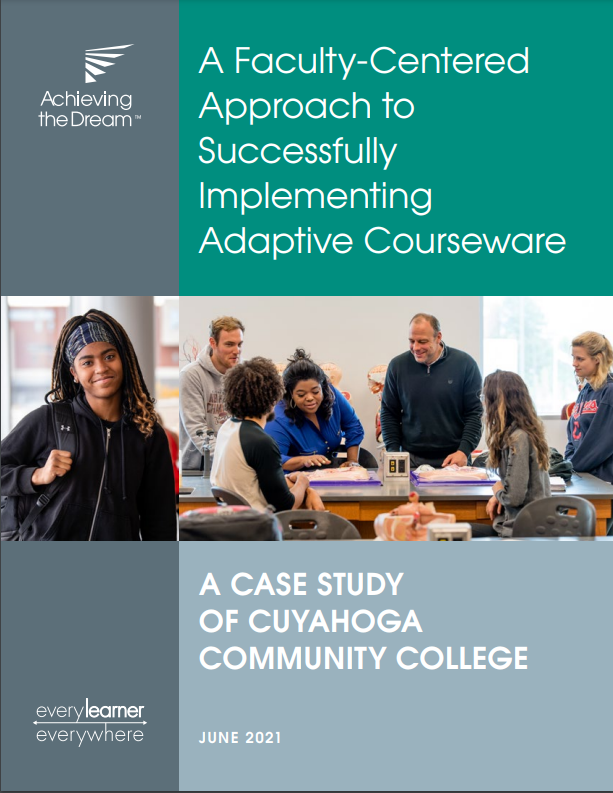
Faculty at Cuyahoga Community College led efforts to implement and then scale adaptive courseware for gateway courses in more than a half-dozen disciplines.
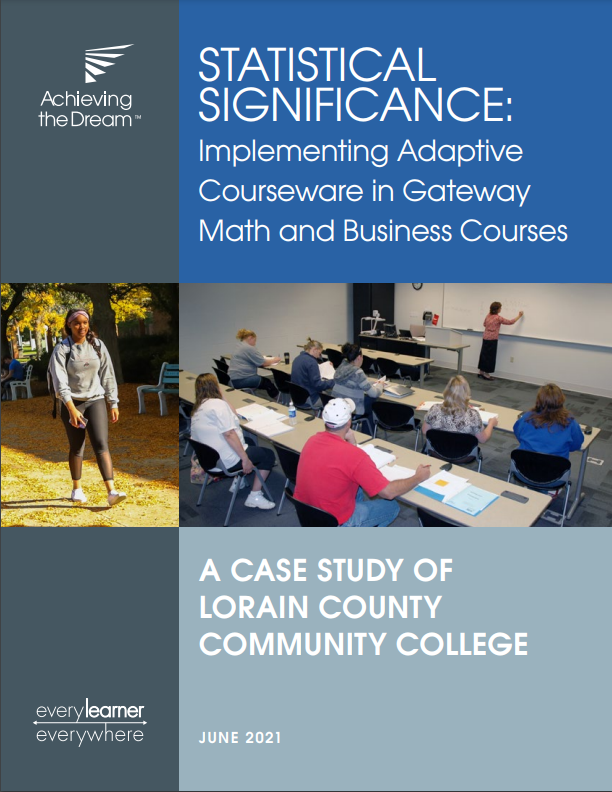
Faculty in several disciplines at Lorain County Community College explored the use of adaptive courseware, ultimately implementing it in a gateway statistics course and several business courses.
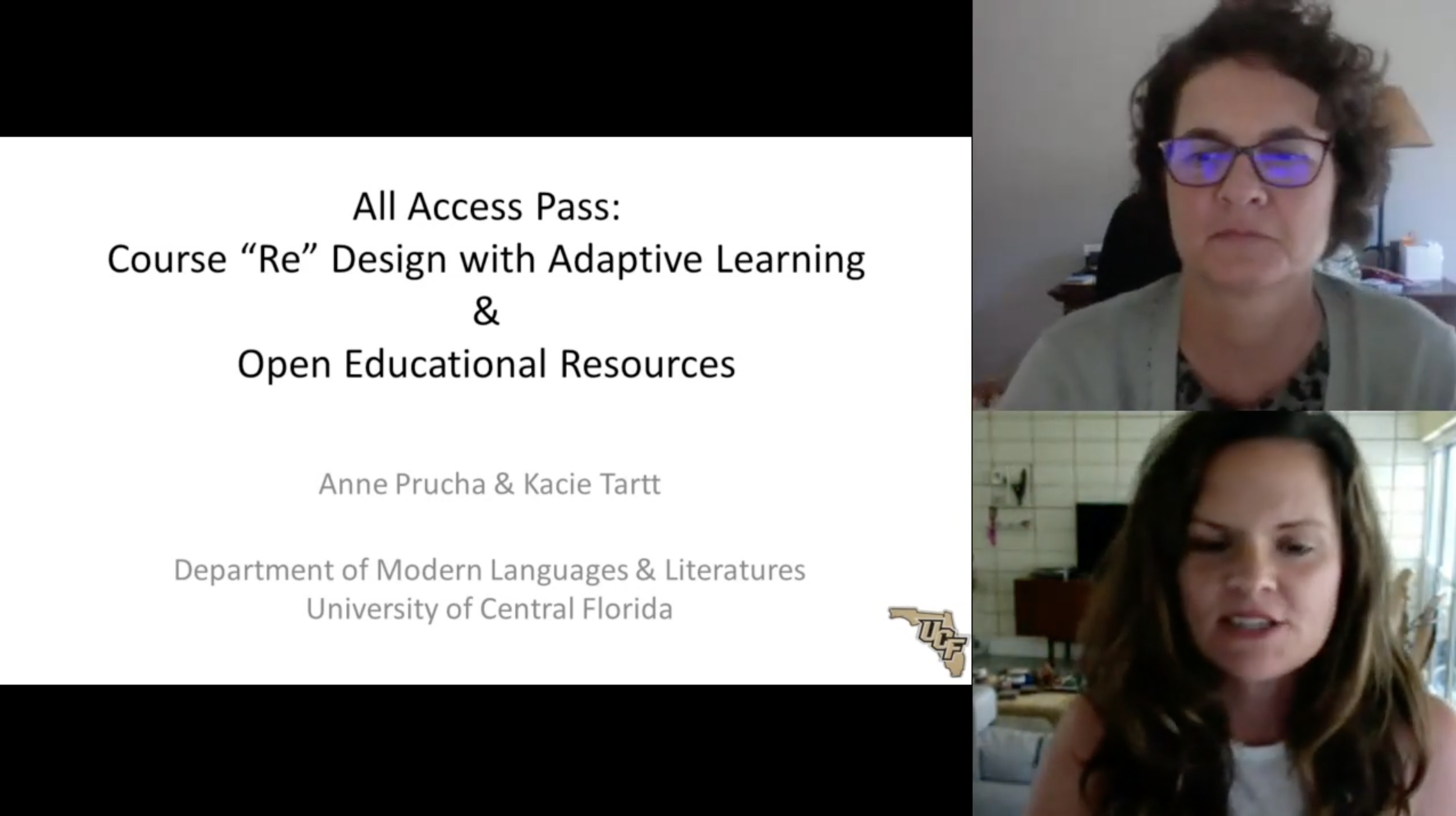
Learn about the work of faculty at the University of Central Florida who improved accessibility and equity through the adoption of adaptive learning practices.
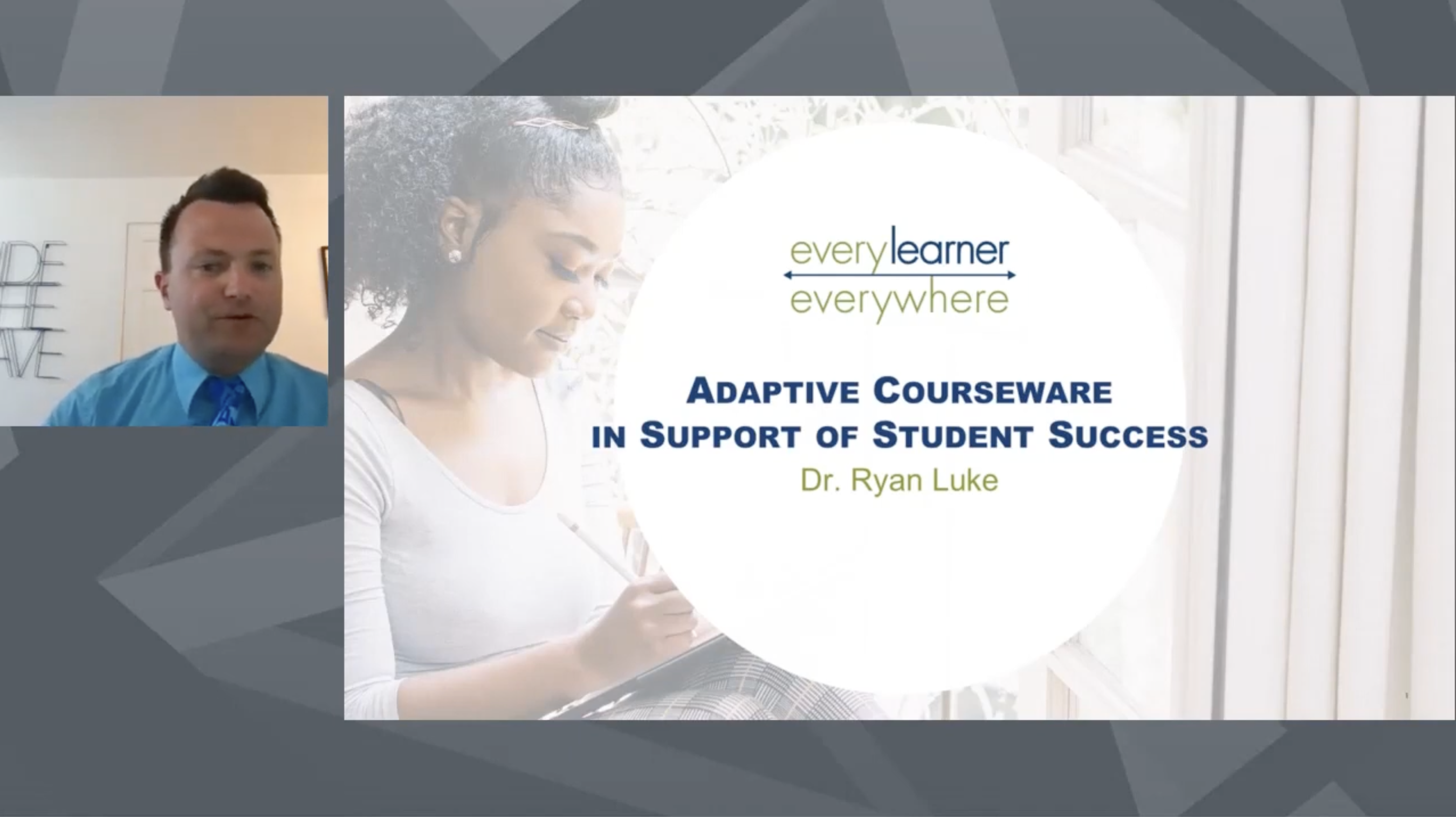
How personalized digital learning technology can support evidence-based teaching.
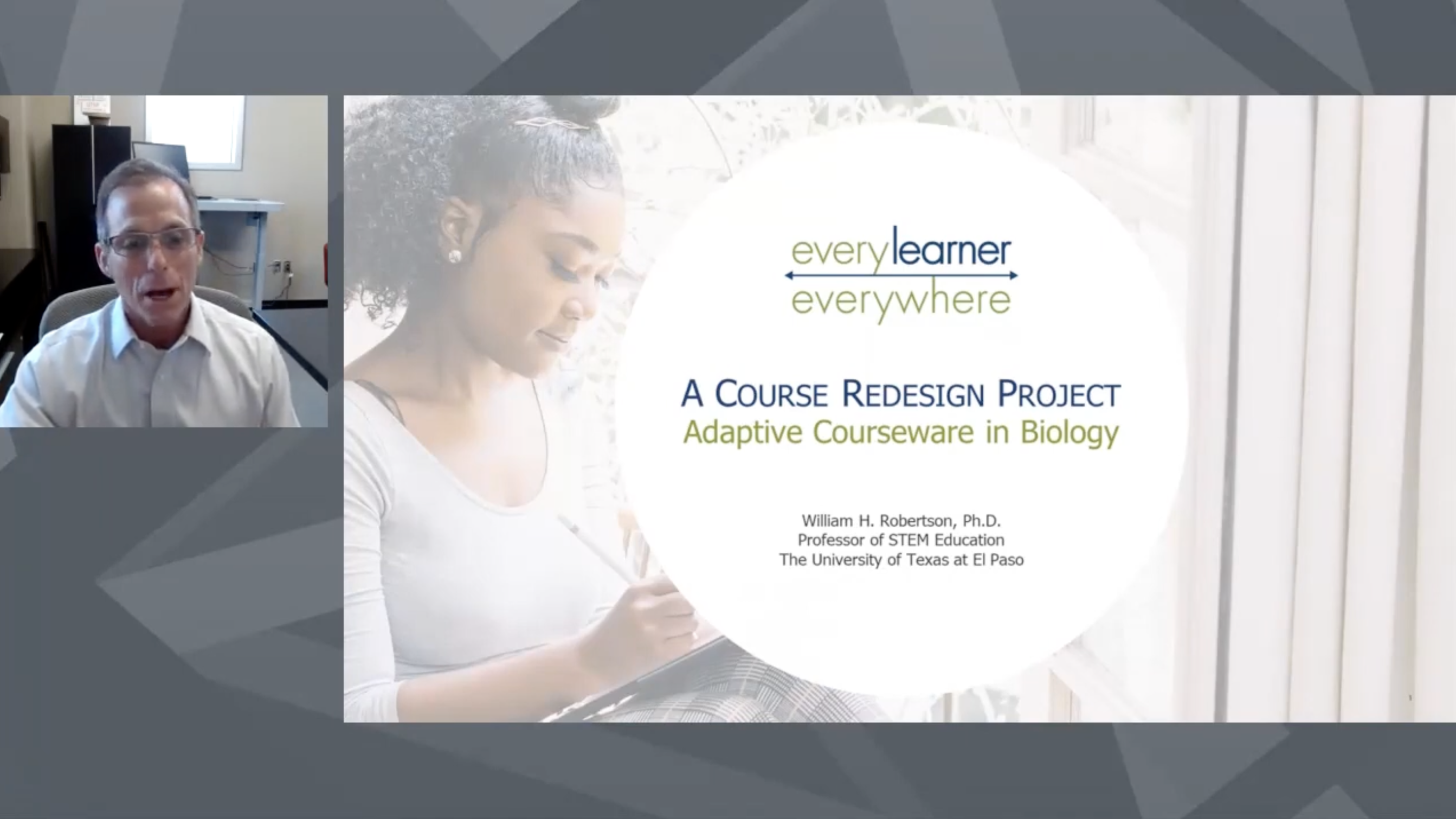
How to design an adaptive Biology course with effectiveness and scale in mind to change student outcomes.
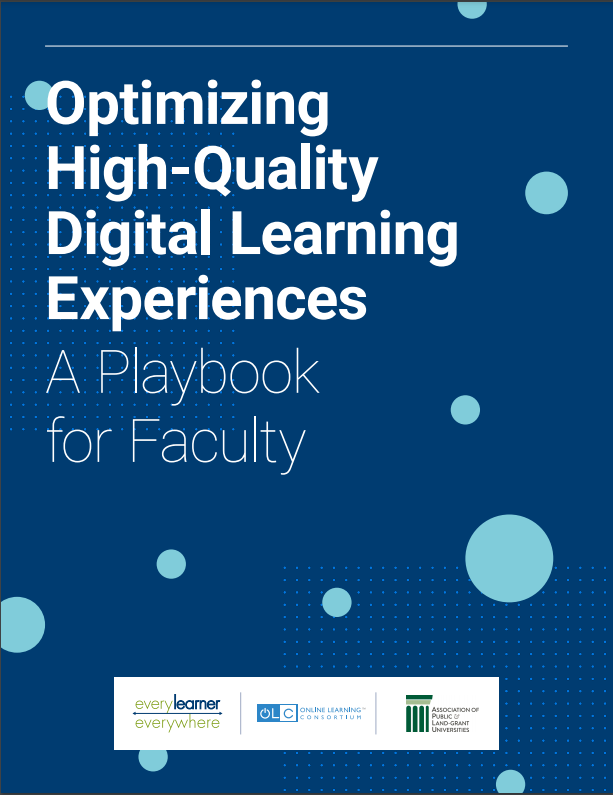
By integrating teaching and design principles, this guide assists faculty in positively impacting student learning, especially for students who are minoritized because of race, gender, disability, or socioeconomic status.
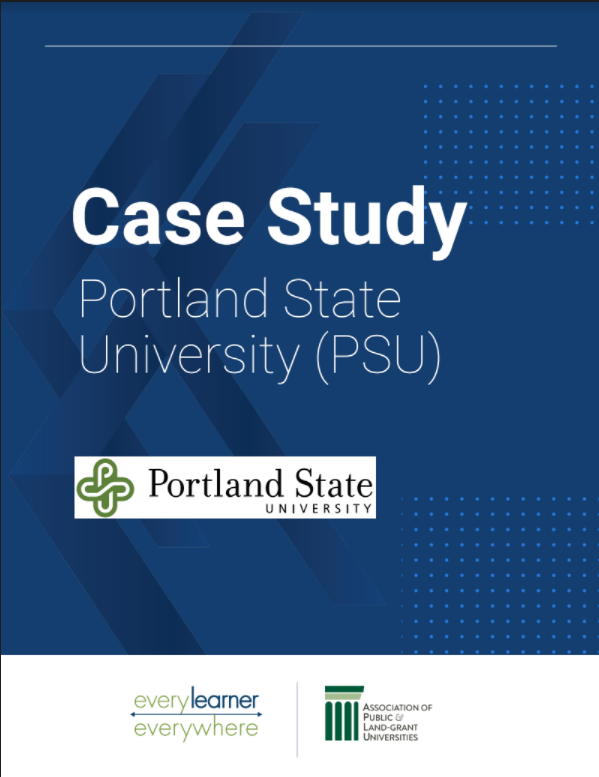
Combining active learning with adaptive courseware leads to a statistically significant reduction of DFW grades in foundational courses.
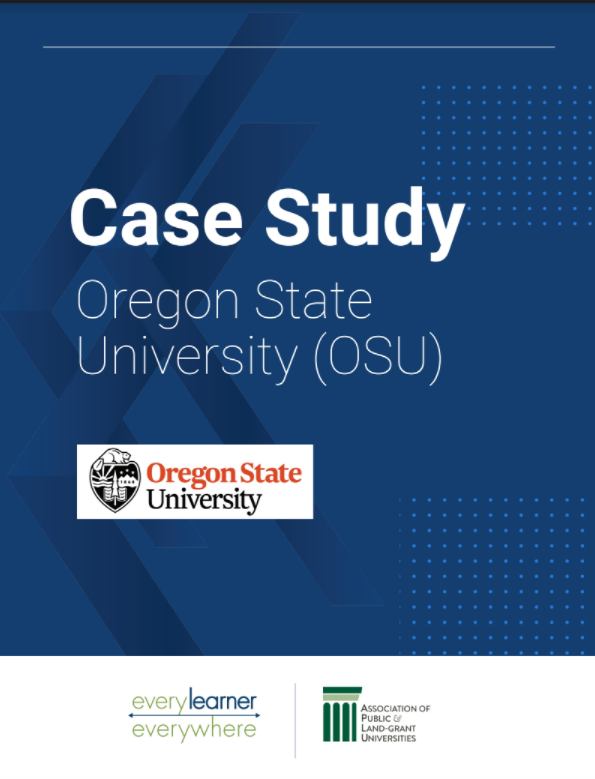
Stakeholder engagement and close collaboration important to the adaptive courseware implementation process.
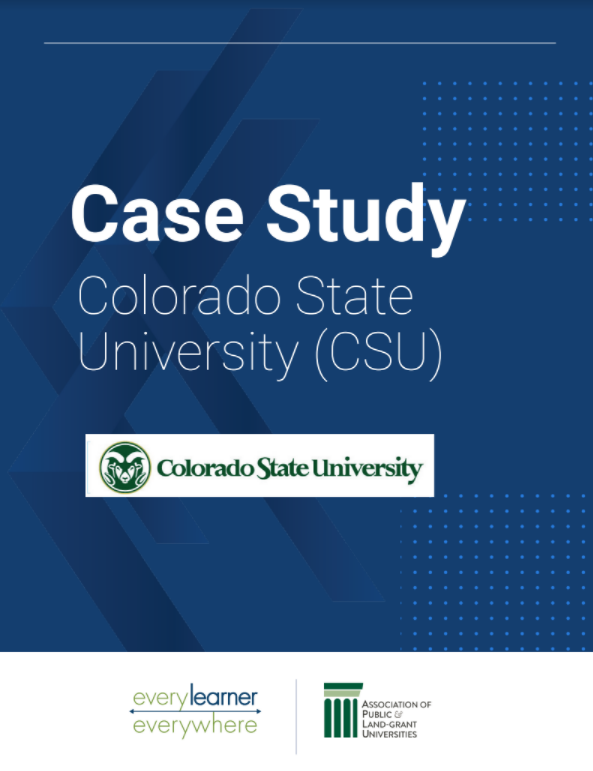
A case study at Colorado State University (CSU), found the use of active learning and adaptive courseware, along with an intentional faculty development program, are key in the implementation of adaptive courseware.
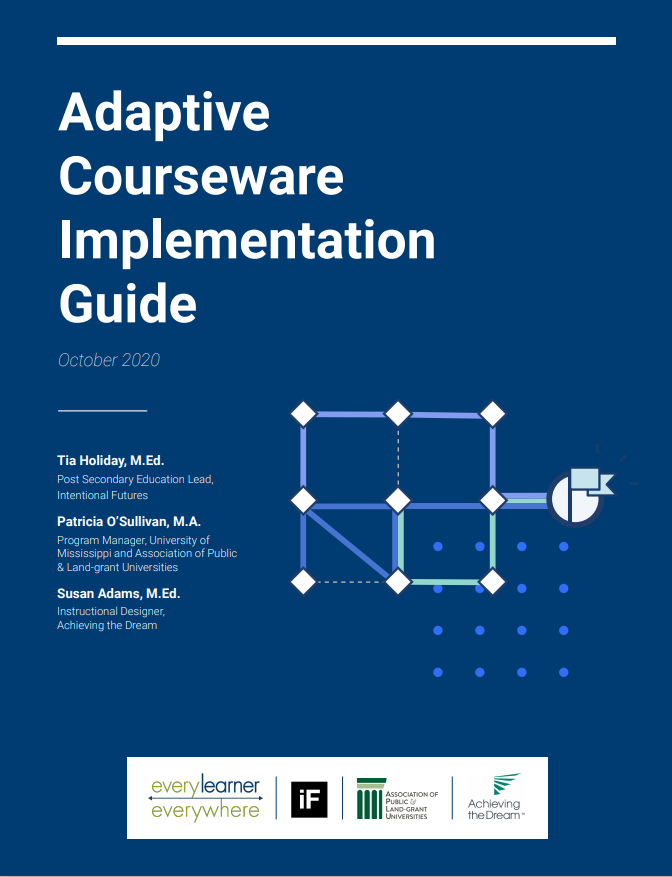
This extensive resource will provide you with practical strategies and resources to implement adaptive courseware with an equity-minded and student-centered approach.
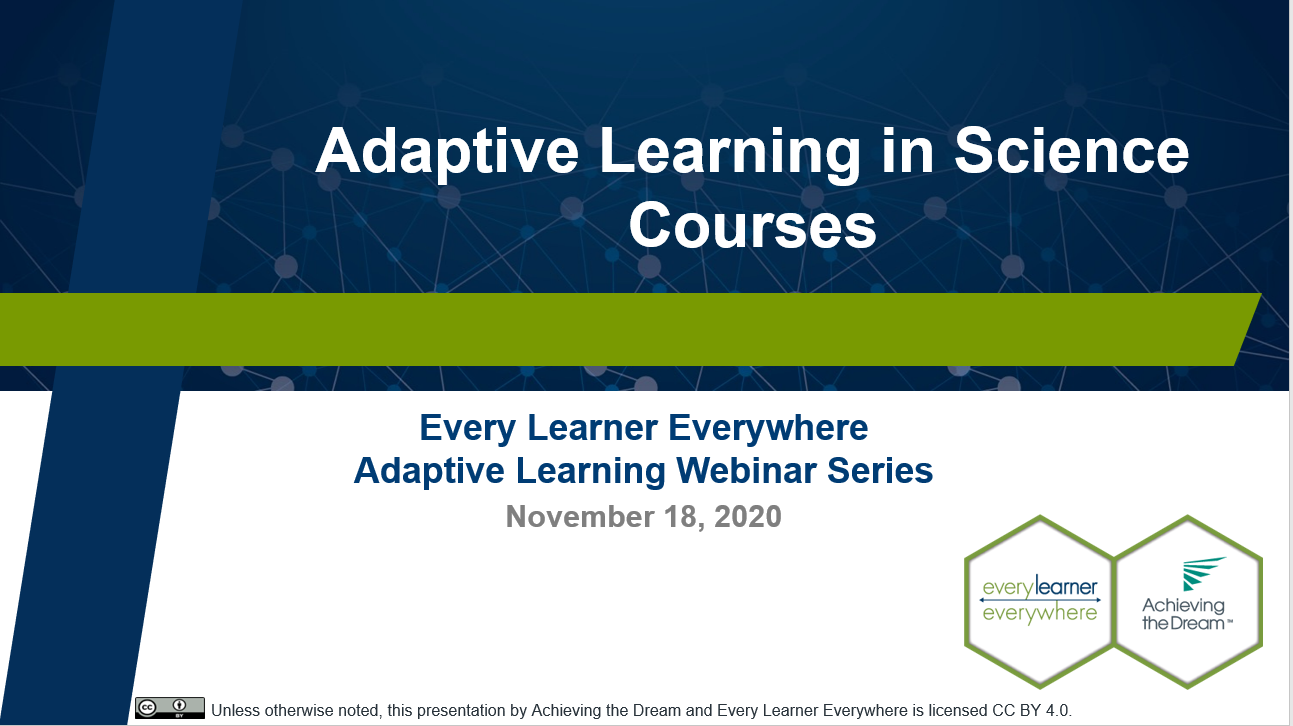
Faculty discuss adaptive learning in science and how tools and practices can transform courses to increase student success.
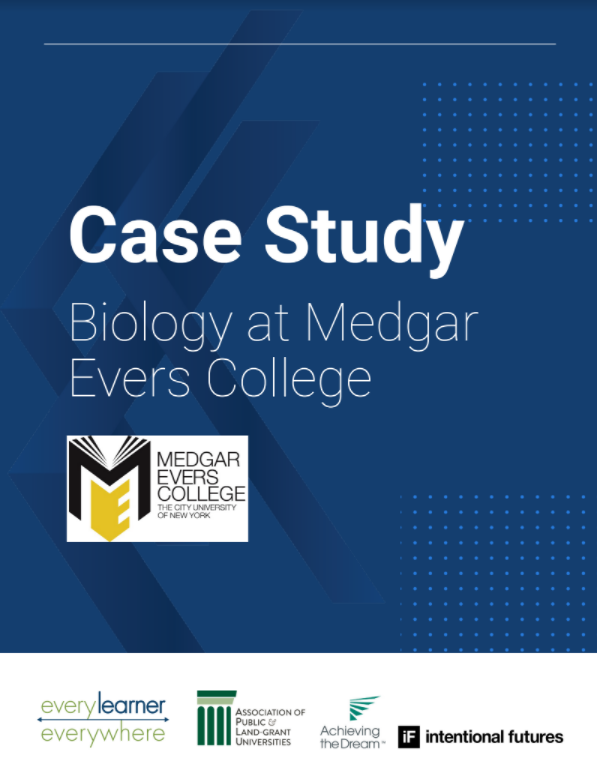
This case study looks at how active learning and learning analytics can improve student success in biology courses.
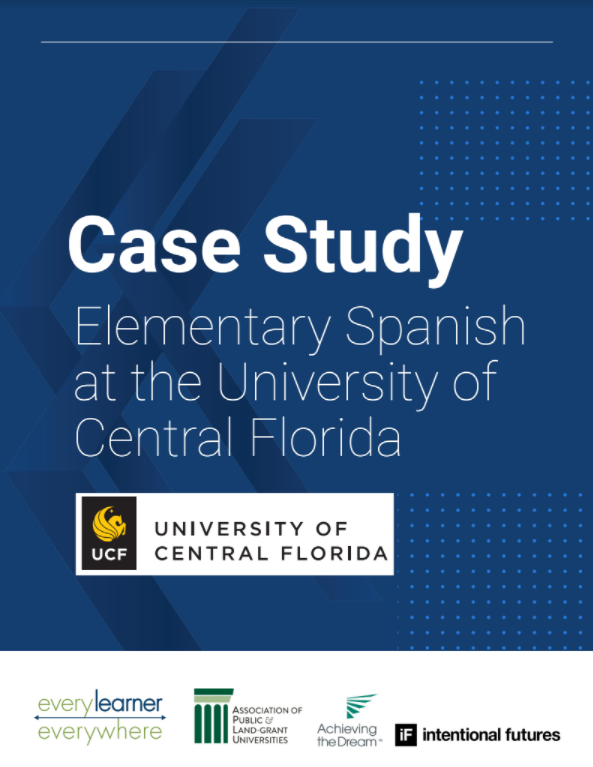
This case study on elementary Spanish looks at how to customize a course for a students by involving them in review and updates.
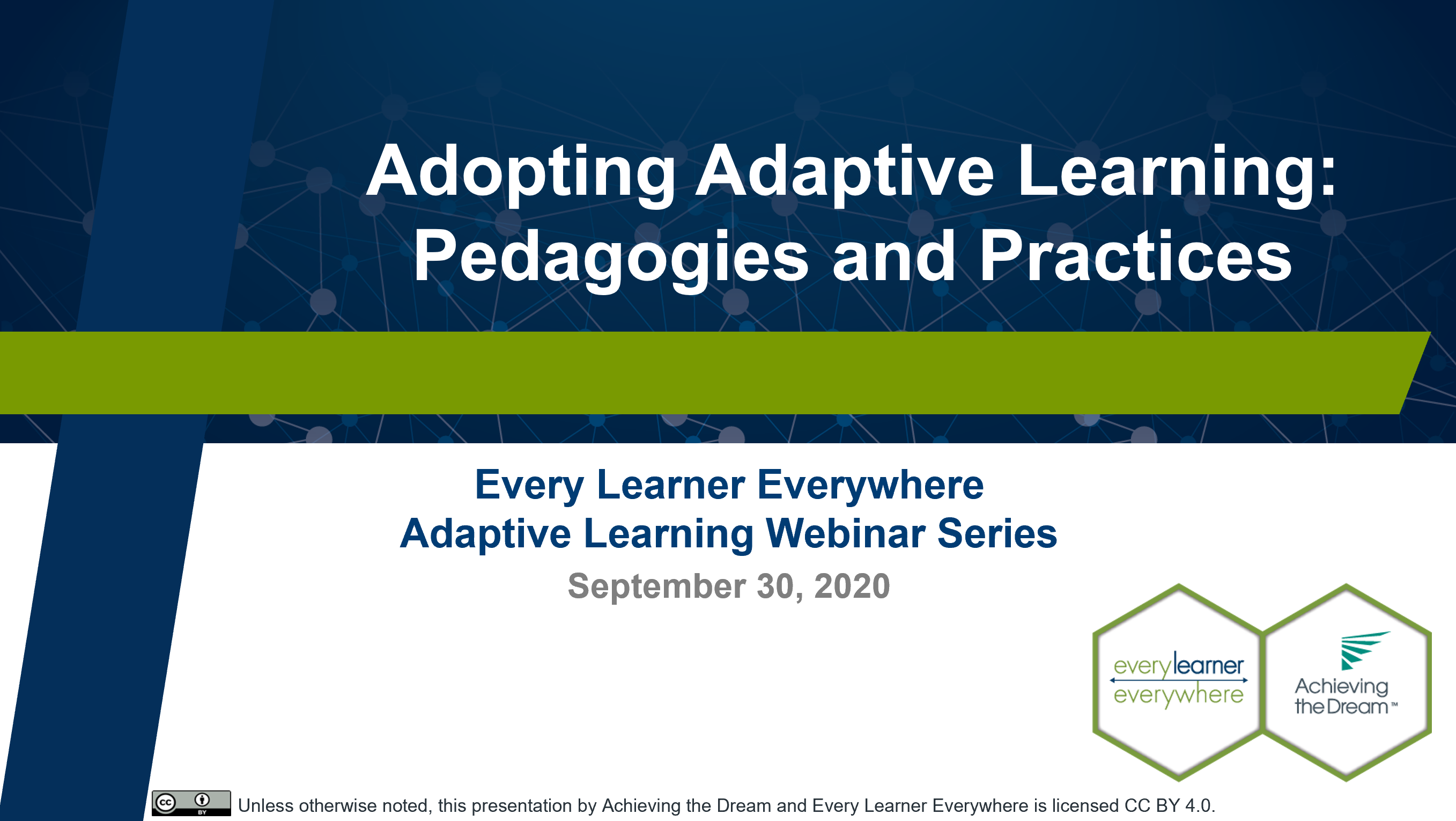
Faculty discuss how they’ve brought adaptive learning into their courses, and how it has altered teaching and learning for them and their students.
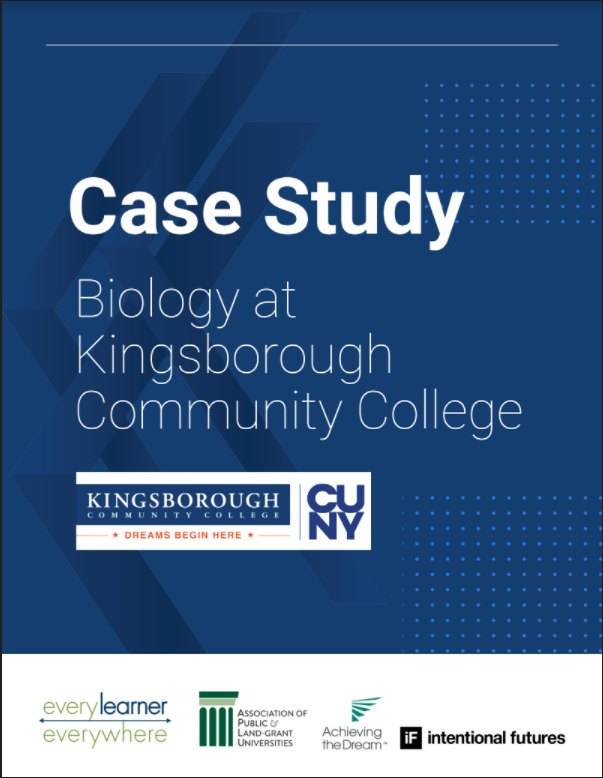
This case study looks at how biology students can make test bank questions relevant by co-writing them
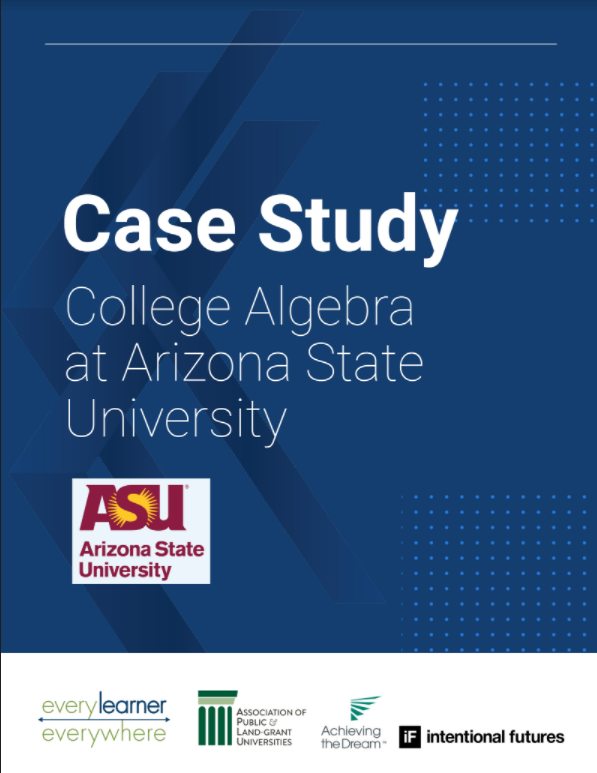
This case study looks at removing barriers and increasing student success in college algebra.
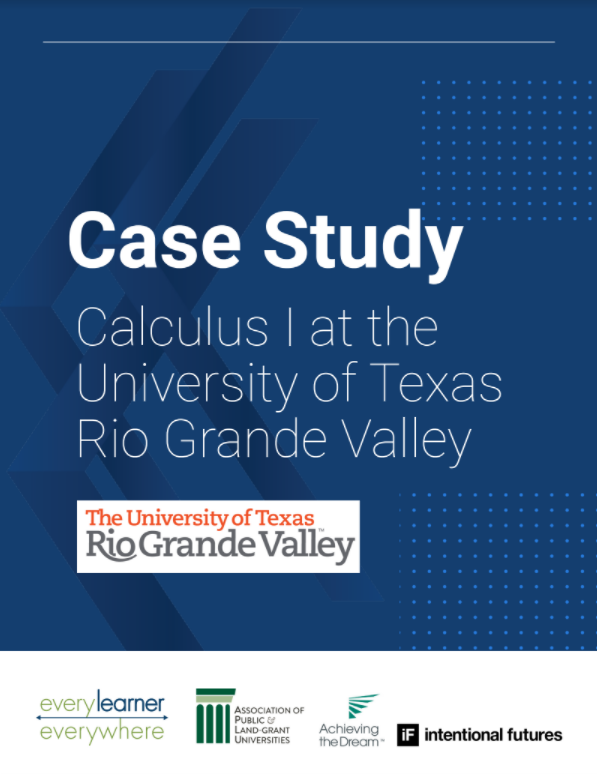
This case study looks at how Calculus faculty are improving student success through multi-section coordination.
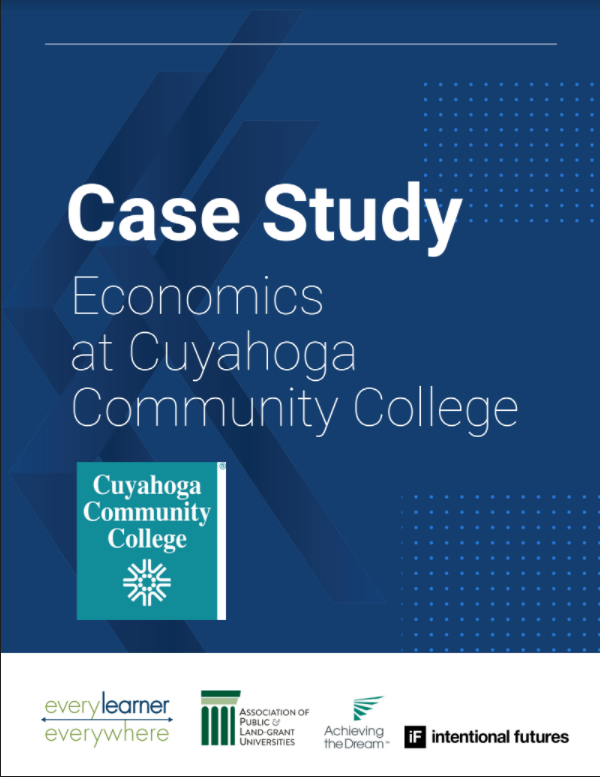
This case study looks at how one professor is increasing Course Success in economics through Student Engagement and Active Learning.
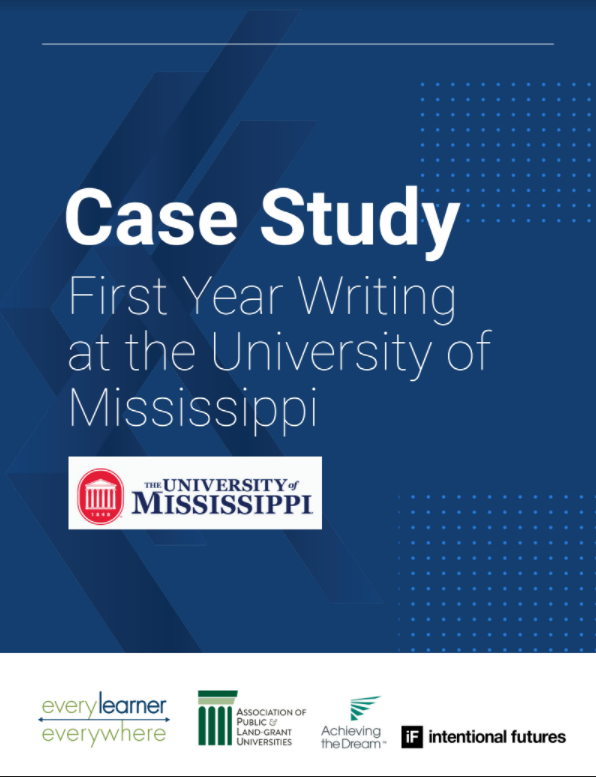
This resource provides suggestions for breaking down those barriers to international students in online learning.
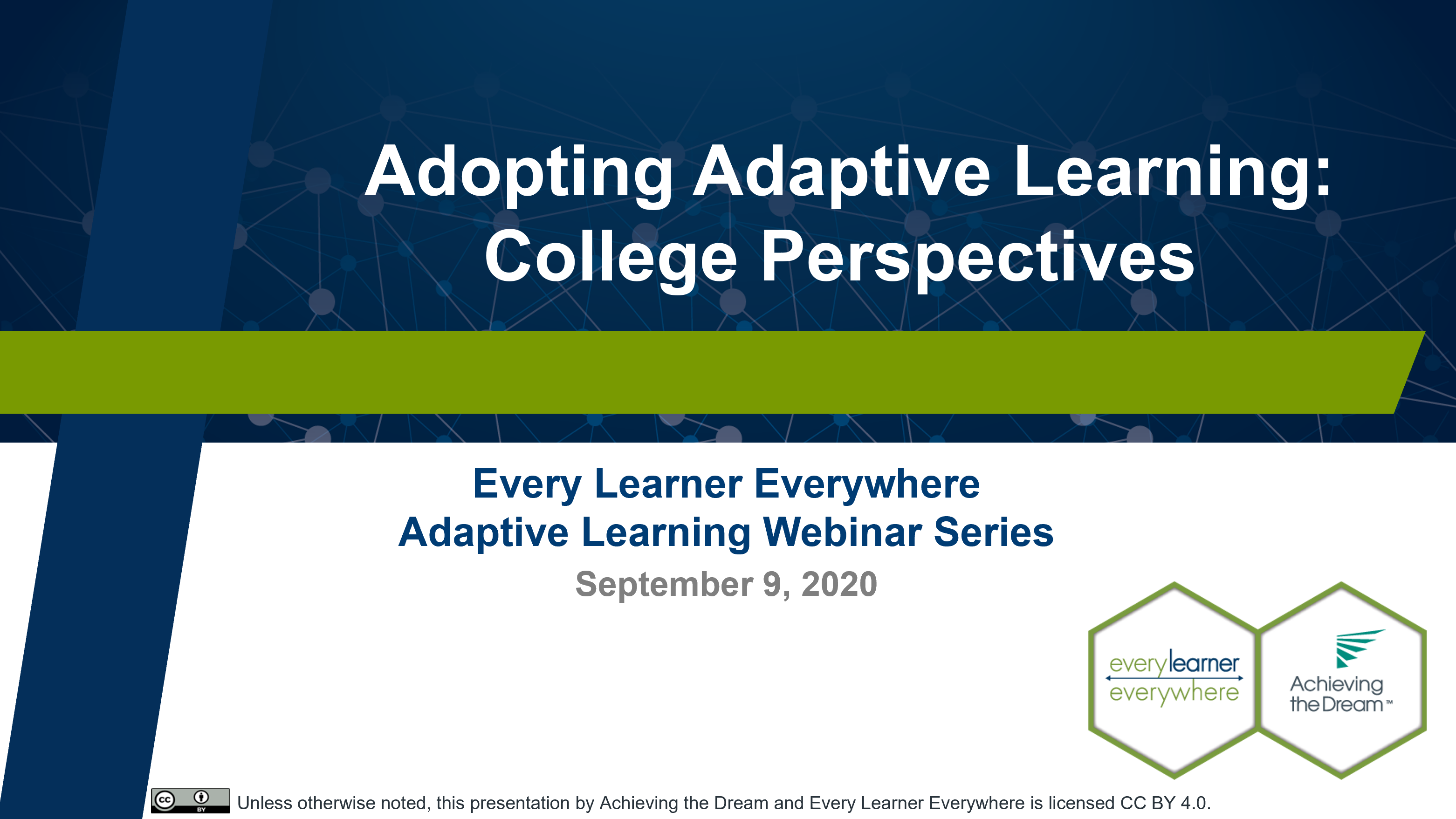
Faculty and staff from various ATD colleges share their experiences implementing adaptive learning at their colleges
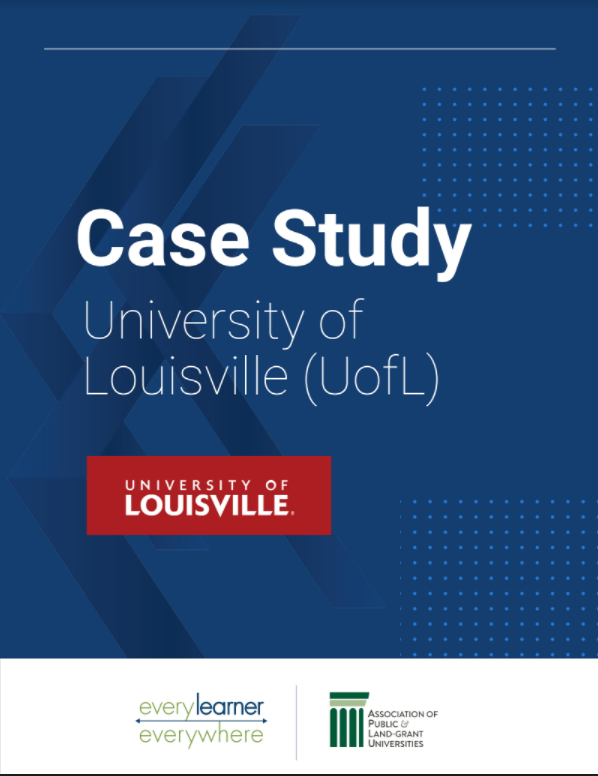
This case study from the University of Louisville demonstrates their approach to leveraging adaptive courseware to improve course design.
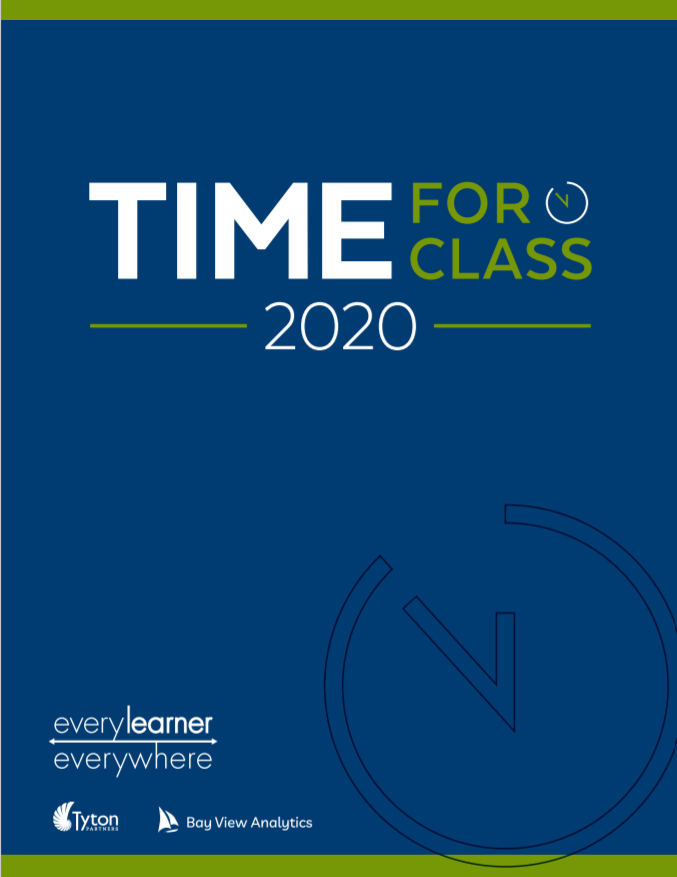
This survey is designed to help higher education stakeholders gain an understanding of digital learning tools for increasing affordability and accessibility for students.
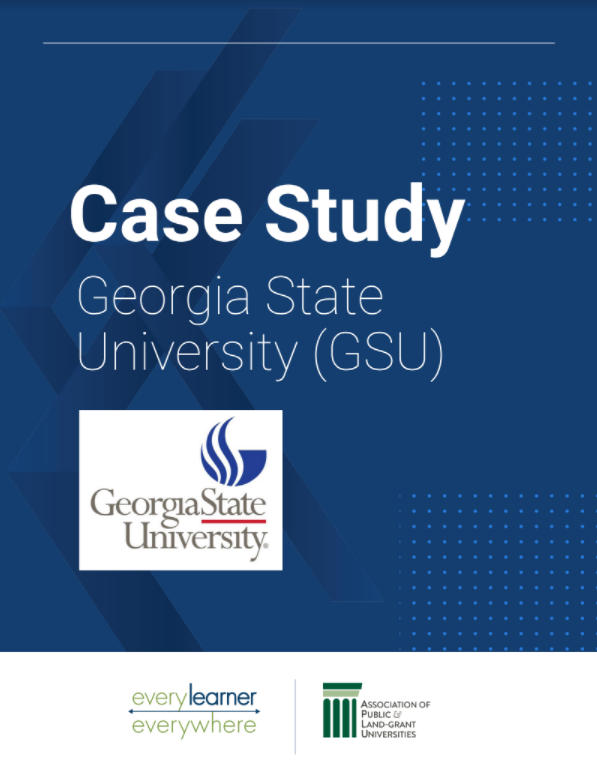
This case study from Georgia State University demonstrates their approach to scaling adaptive courseware and the effective use of analytics.
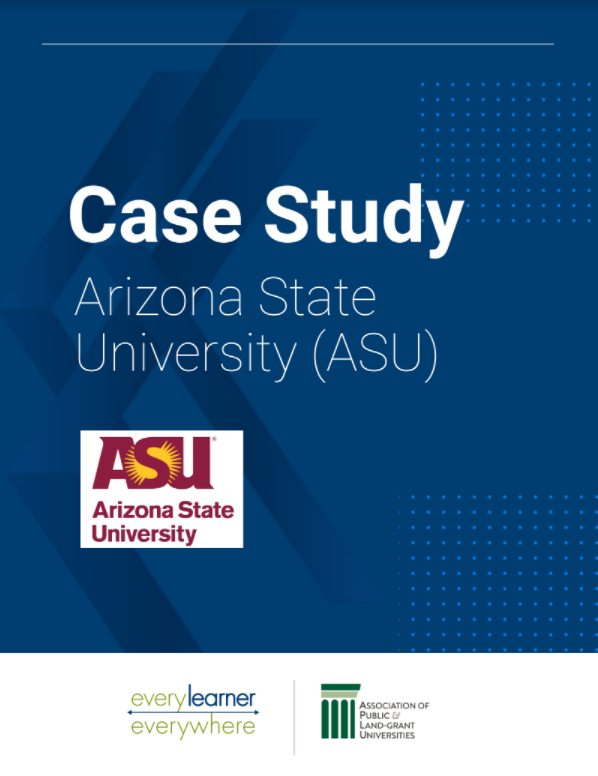
In this case study, Arizona State University shares the progress of their adaptive courseware implementation.
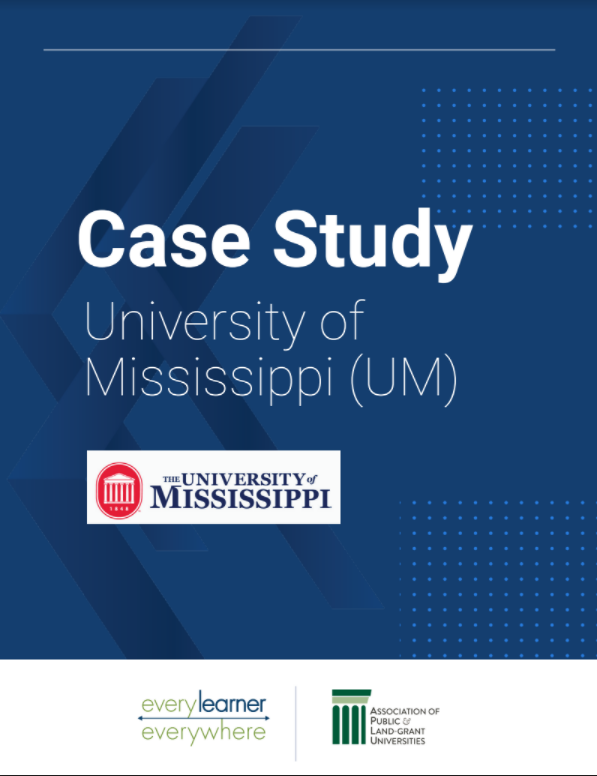
This case study looks at faculty support and buy-in and draws on valuable insights from student focus groups.
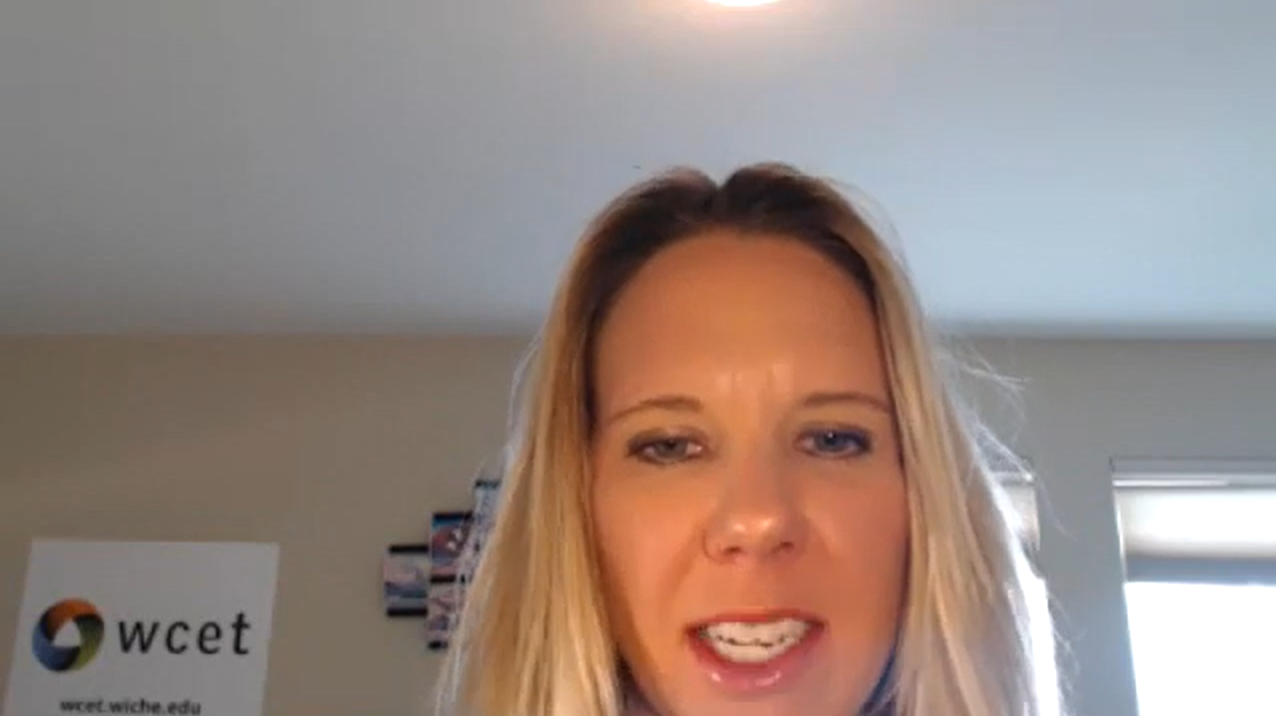
This webinar conversation highlights how students can navigate an unknown fall academic year and how administration can support students.
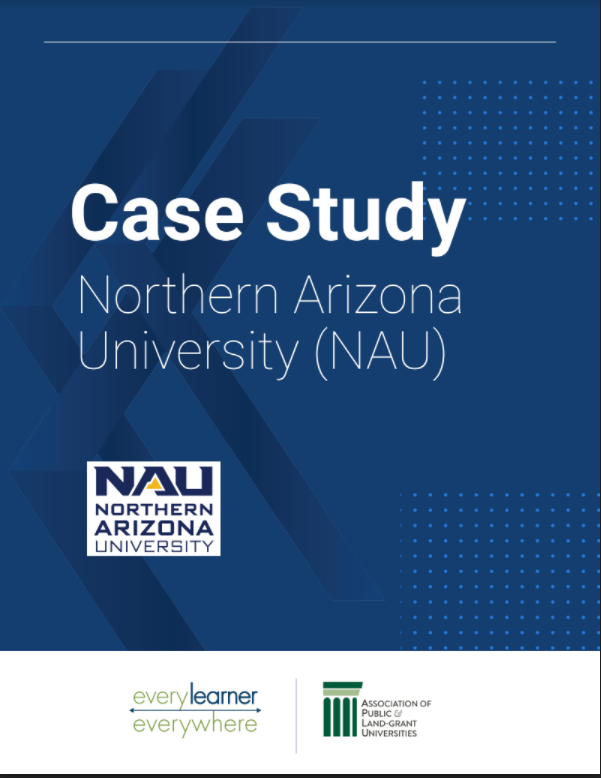
This case study from Northern Arizona University demonstrates the increase in student success that can result from the implementation of adaptive courseware.
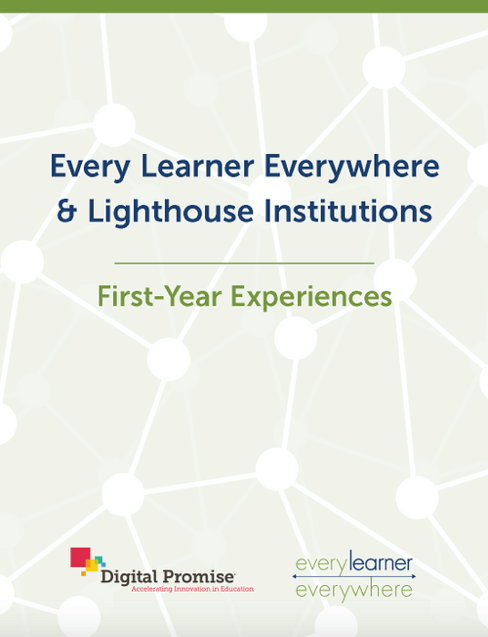
The report Every Learner Everywhere & Lighthouse Institutions shares first-year experiences of 2- and 4-year colleges piloting new versions of gateway courses incorporating adaptive learning.
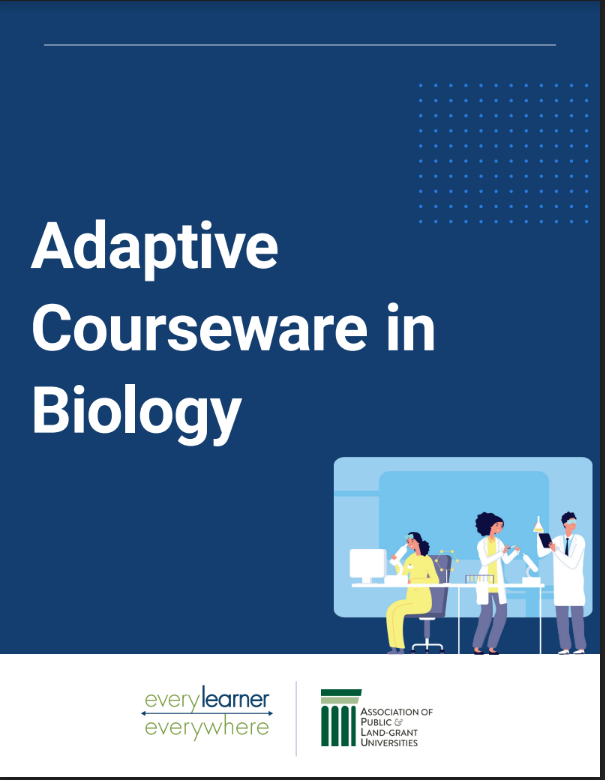
This brief provides an overview of the current research on the effectiveness of adaptive courseware broadly and in the discipline of Biology.

This brief provides an overview of the current research on the effectiveness of adaptive courseware broadly and in the discipline of Chemistry.
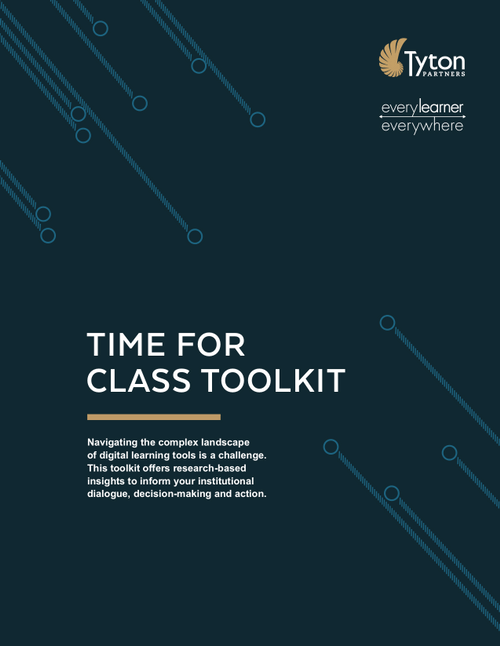
The Time for Class 2019 Toolkit is a set of research-based action briefs and tools designed to support institutional dialogue, decision-making and action.































































